Best power supply for PC gaming
Watt's the best power supply unit for PC gaming? Best PSU puns, FTW!
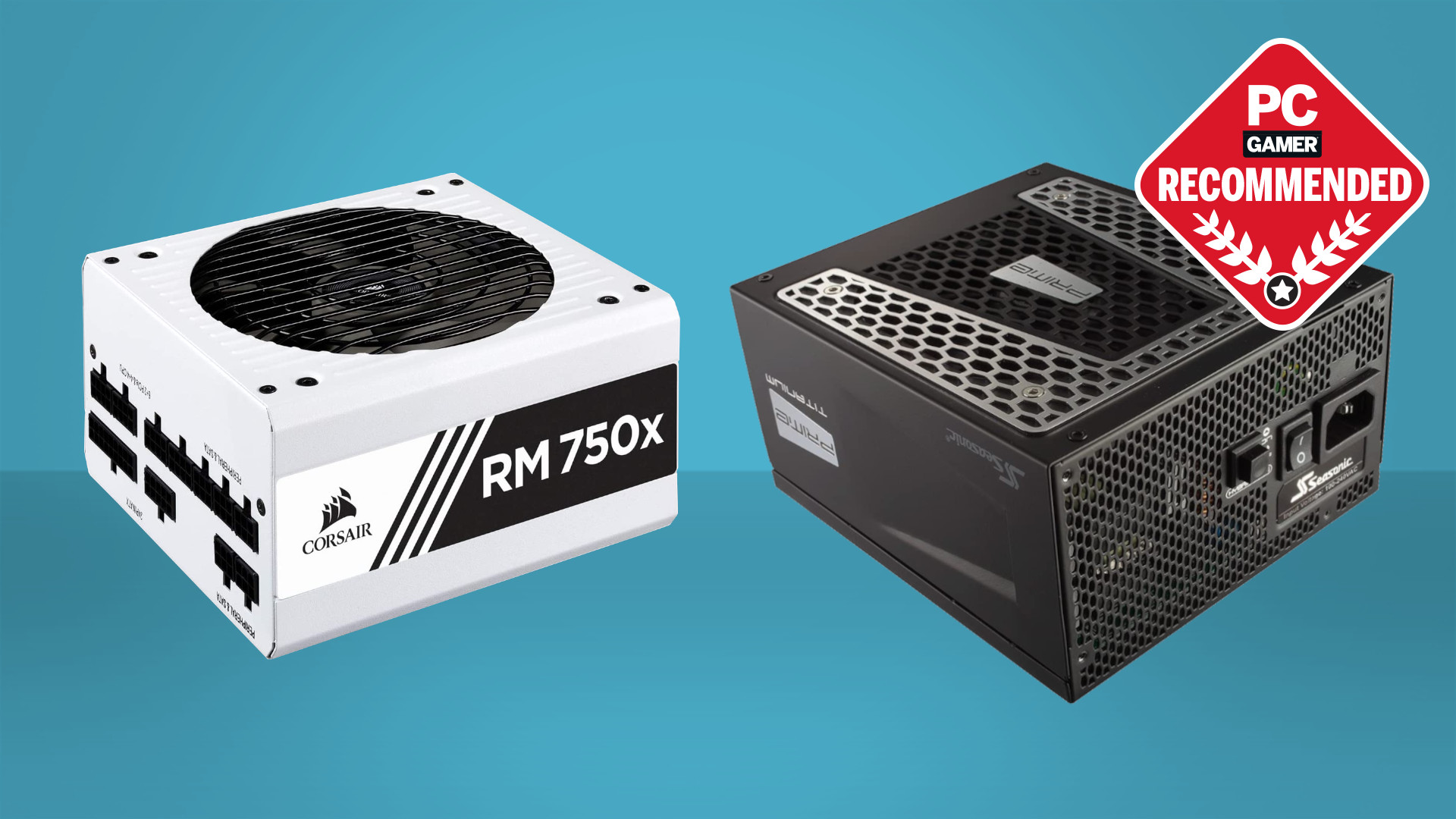
⚡The list in brief
1. Best overall
2. Best 1KW
3. Best cheap
4. Best low-capacity
5. Best high-capacity
6. Best SFF
7. Most flexible
8. How we test
9. FAQ
The best power supply (PSU) fuels your PC with the energy it needs to run your components. It's a simple part of your rig, but a crucial one that could become a real pain. The best PSUs need to keep up with power-hungry graphics cards and CPUs and they need to do it with a good level of efficiency, and that can be too big an ask for some cheaper models from unknown brands.
That's why we're sticking to the best power supplies for this guide. These are PSUs we've tested for electrical worthiness, but also on their price and compatibility. The top of the lot for a mix of quality and wattage is the Corsair RM750x, but if you want to go bigger in terms of wattage we recommend the Seasonic Prime Titanium TX-1000 instead.
Overly cheap PSUs aren't worth it, so we chose the ones you want to spend a little more on to know you're secure. Don't think of it as wasted cash, however. The best PSUs run flawlessly, are more efficient, and can be carried forward to future builds. That doesn't mean every PSU we recommend is expensive. They're not—some PSUs we love are only $50. There's just a big difference between a cheap PSU from a well-known brand and one from someplace else.
If you're still unsure about where to start when it comes to power supplies, don't sweat, we've tested dozens of PSUs, and handpicked our favorites, highlighting the sort of builds they should be in.
The Quick List
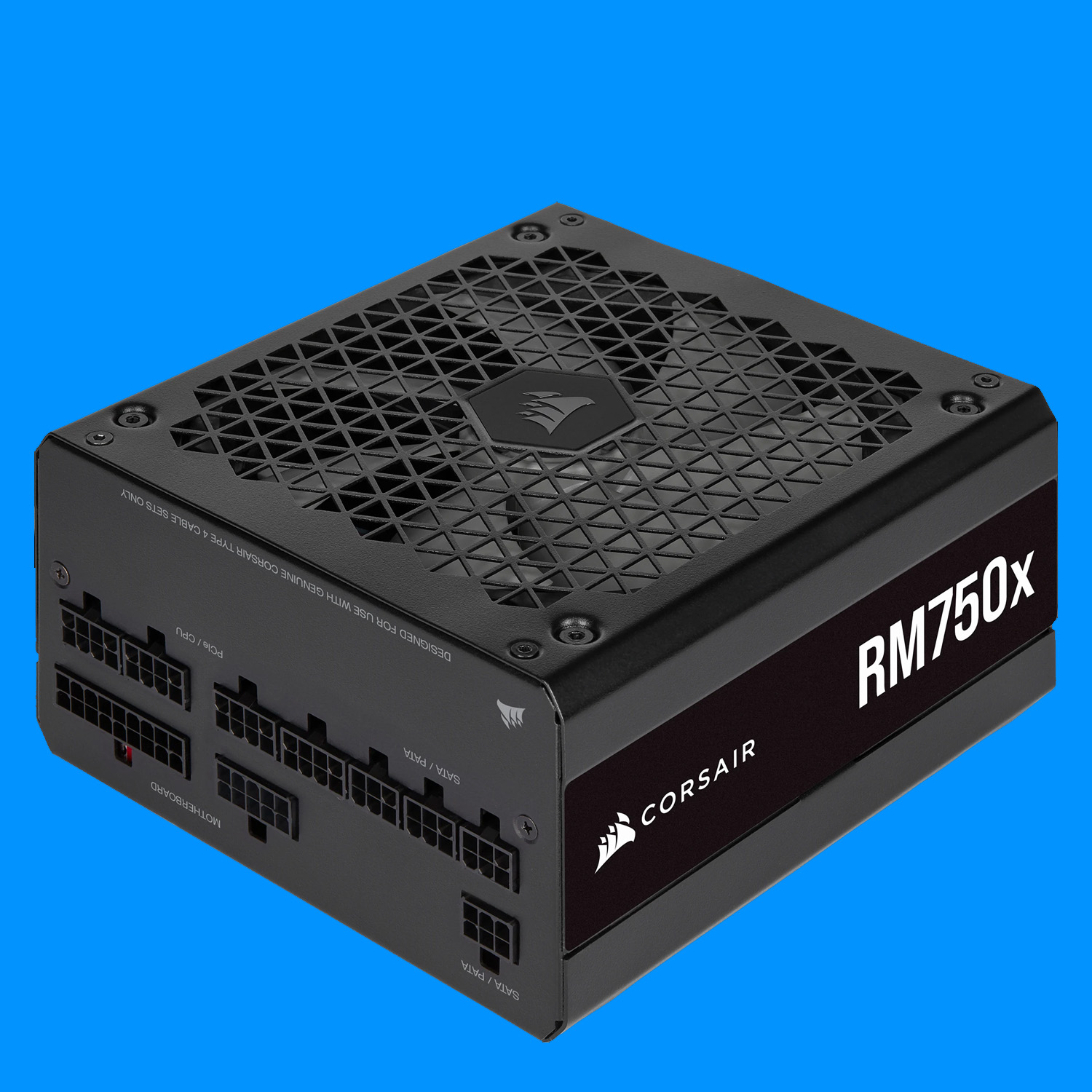
The best overall
Corsair makes a mean PSU, and the RM750X is the best blend of price and wattage to suit most PC gamers' needs. Just bear in mind you'll want to go bigger for a really powerful PC.
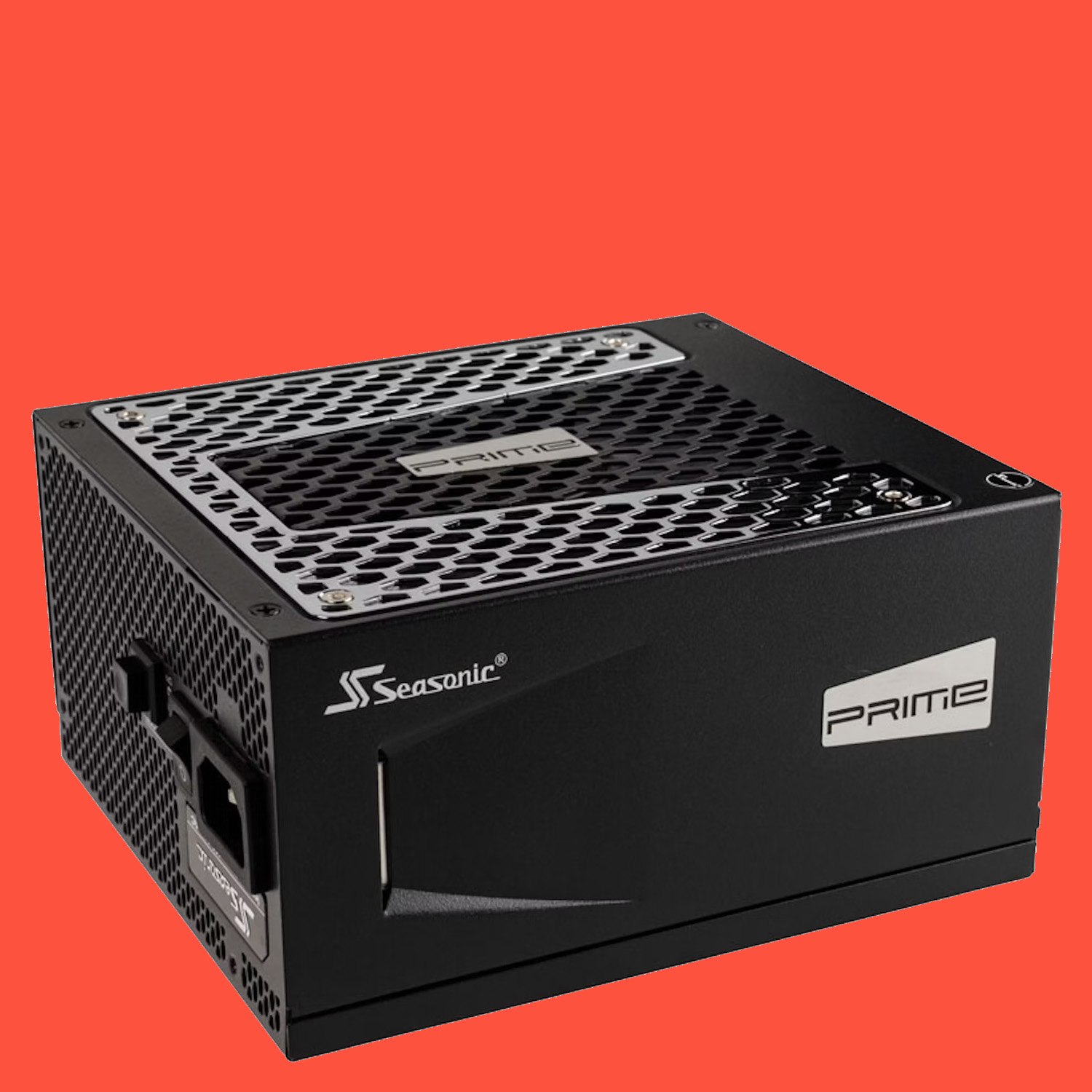
The best 1KW
If you need more power for a high-end gaming PC, look no further than Seasonic's tried and tested TX lineup.
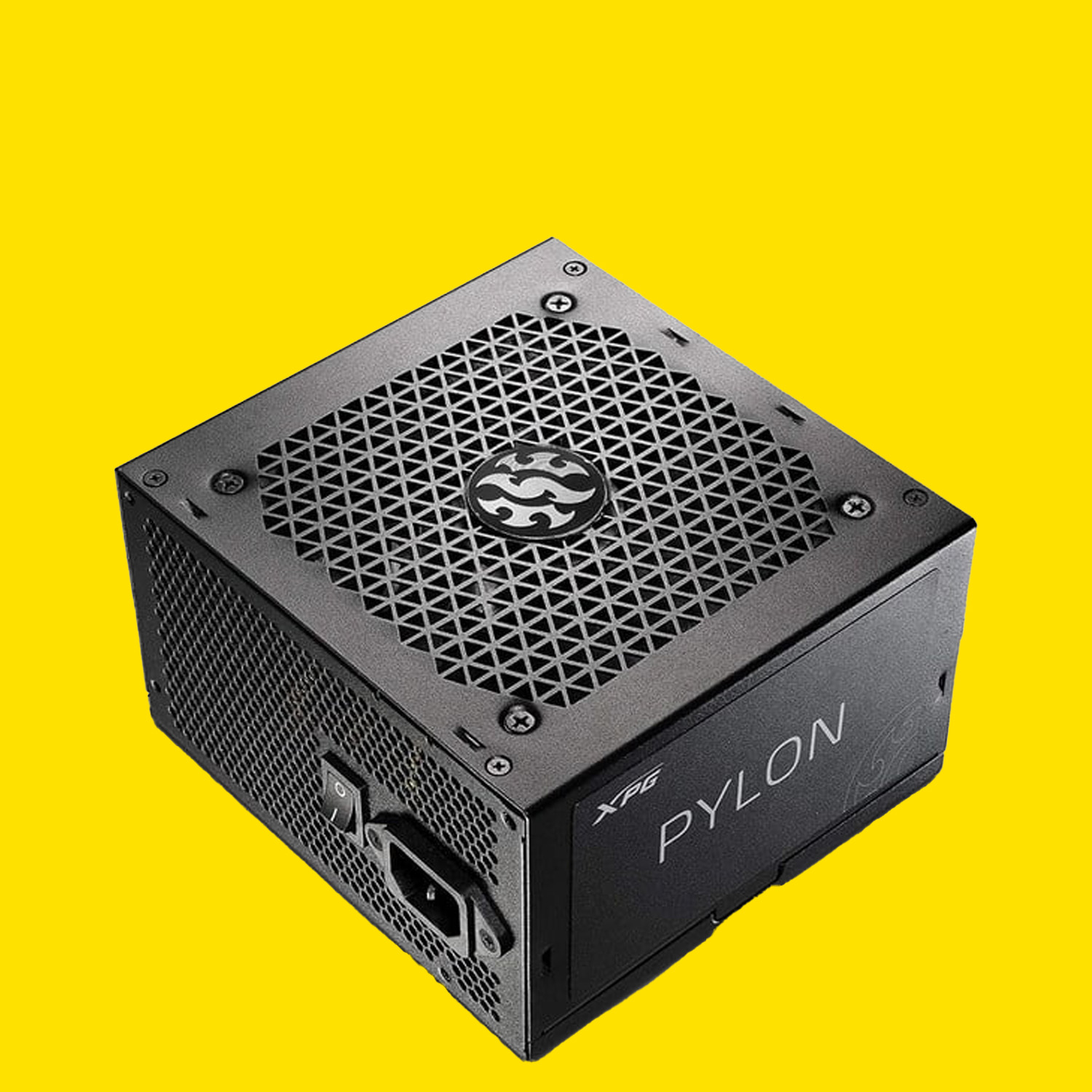
The best cheap
It's easier to make a mistake when trying to save money with your PSU purchase, but XPG doesn't put a foot wrong for the money with the Pylon lineup.
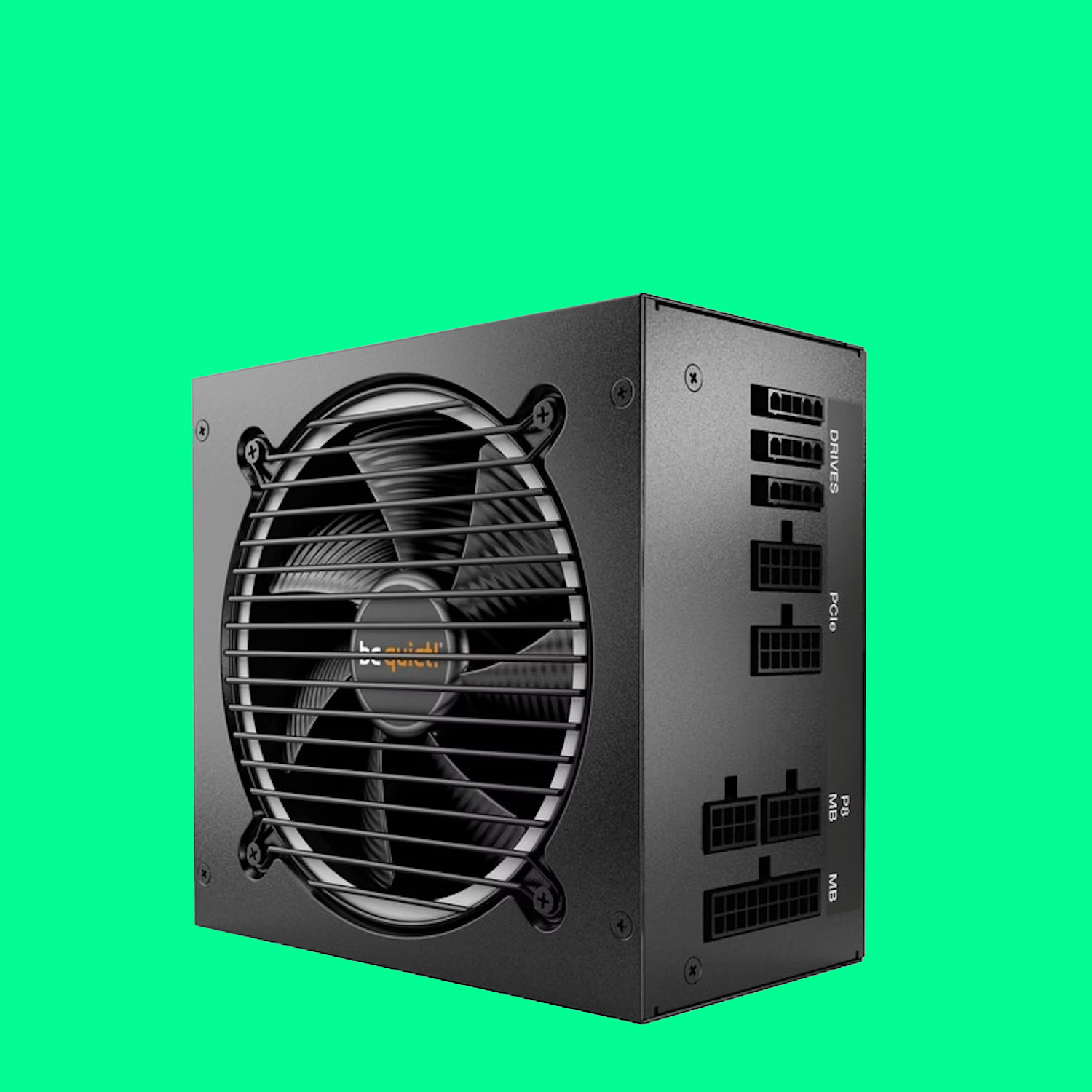
The best low-capacity
With a modular build and a quiet fan, this is a superb all-round power supply for a budget or mid-range build.
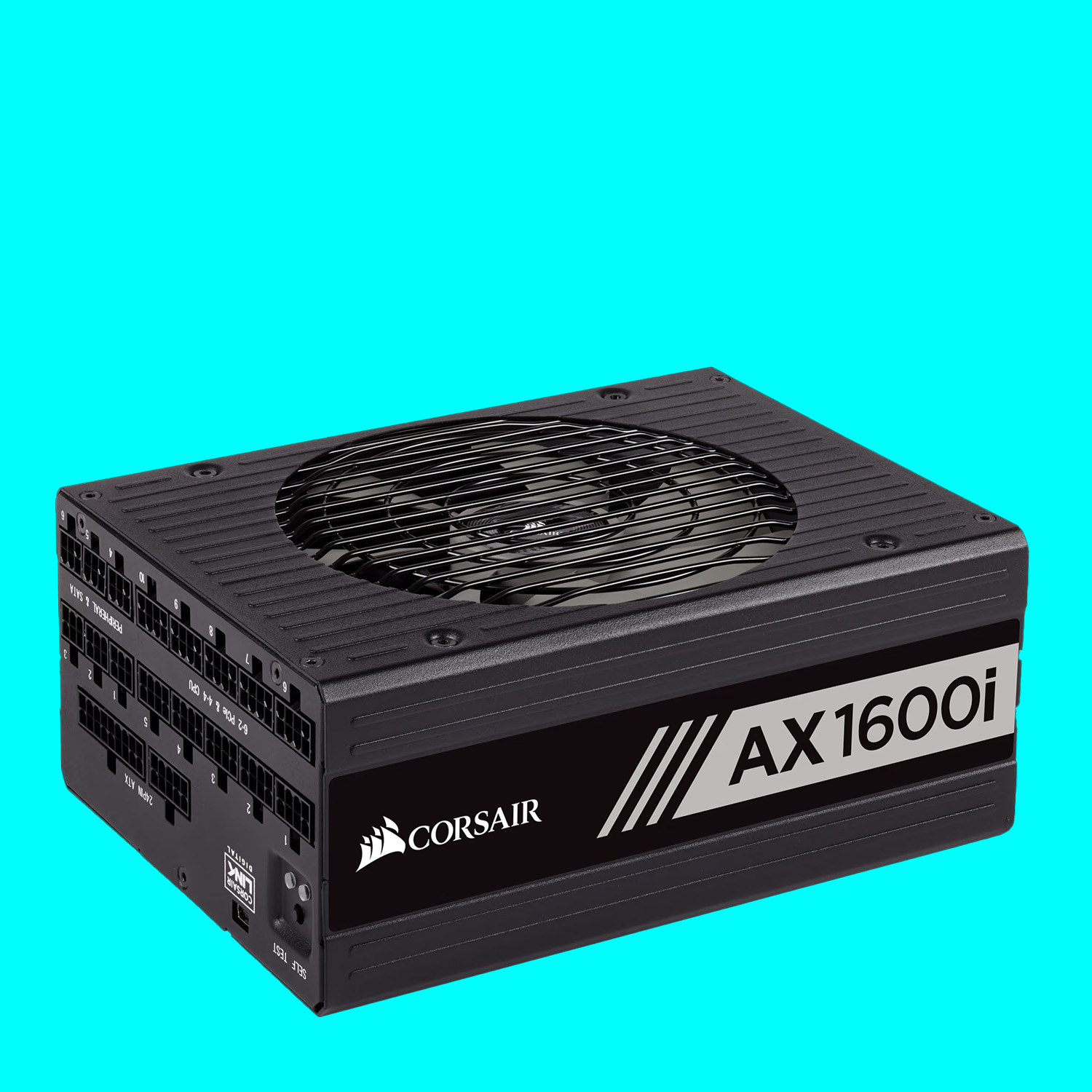
The best high-capacity
Once again we're looking to Corsair for our high-capacity recommendation. Reliable, efficient, and effective—this is one of the best PSUs ever made.
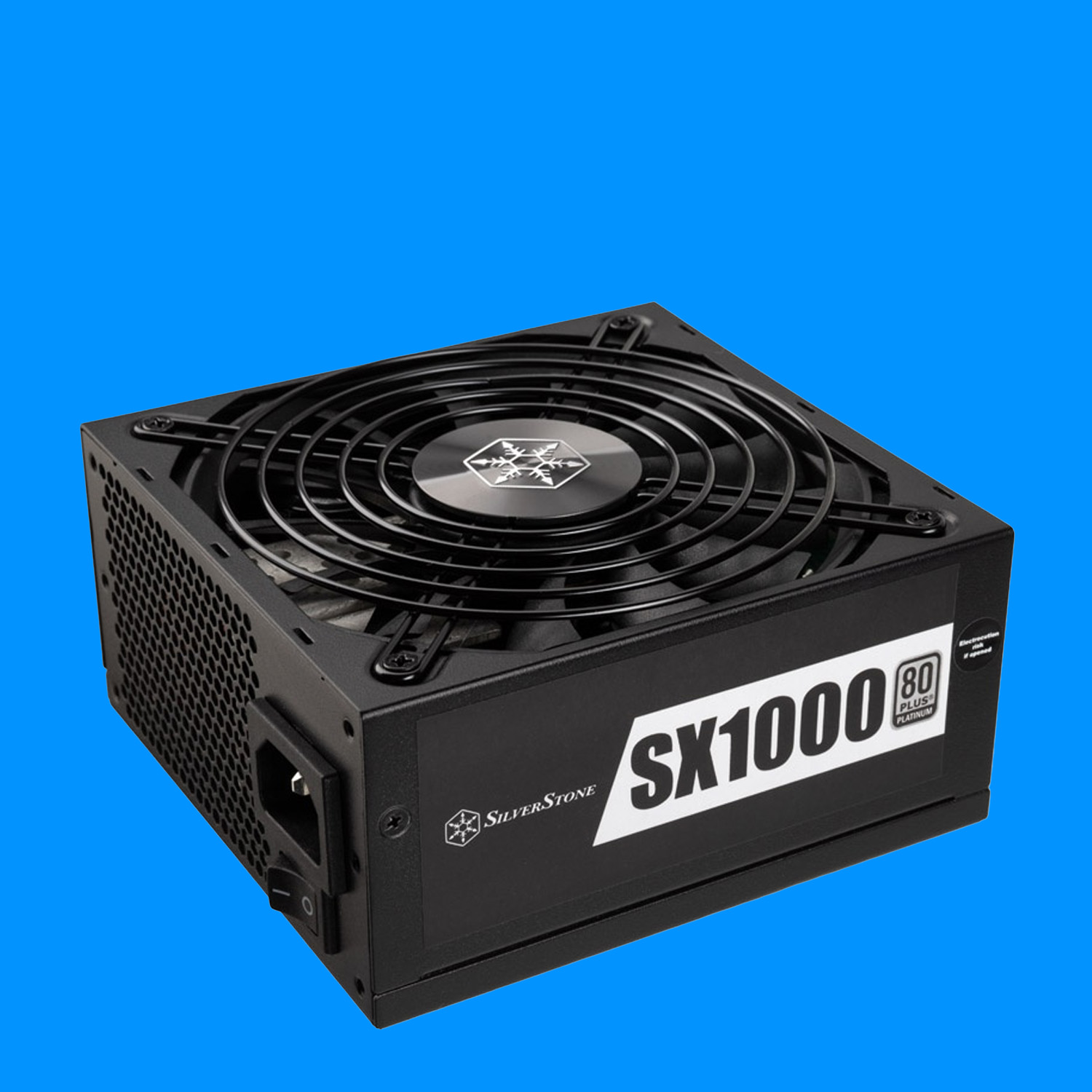
The best SFF
If you need a compact PSU but can't sacrifice power, you're really left with only one great option: the SX1000.
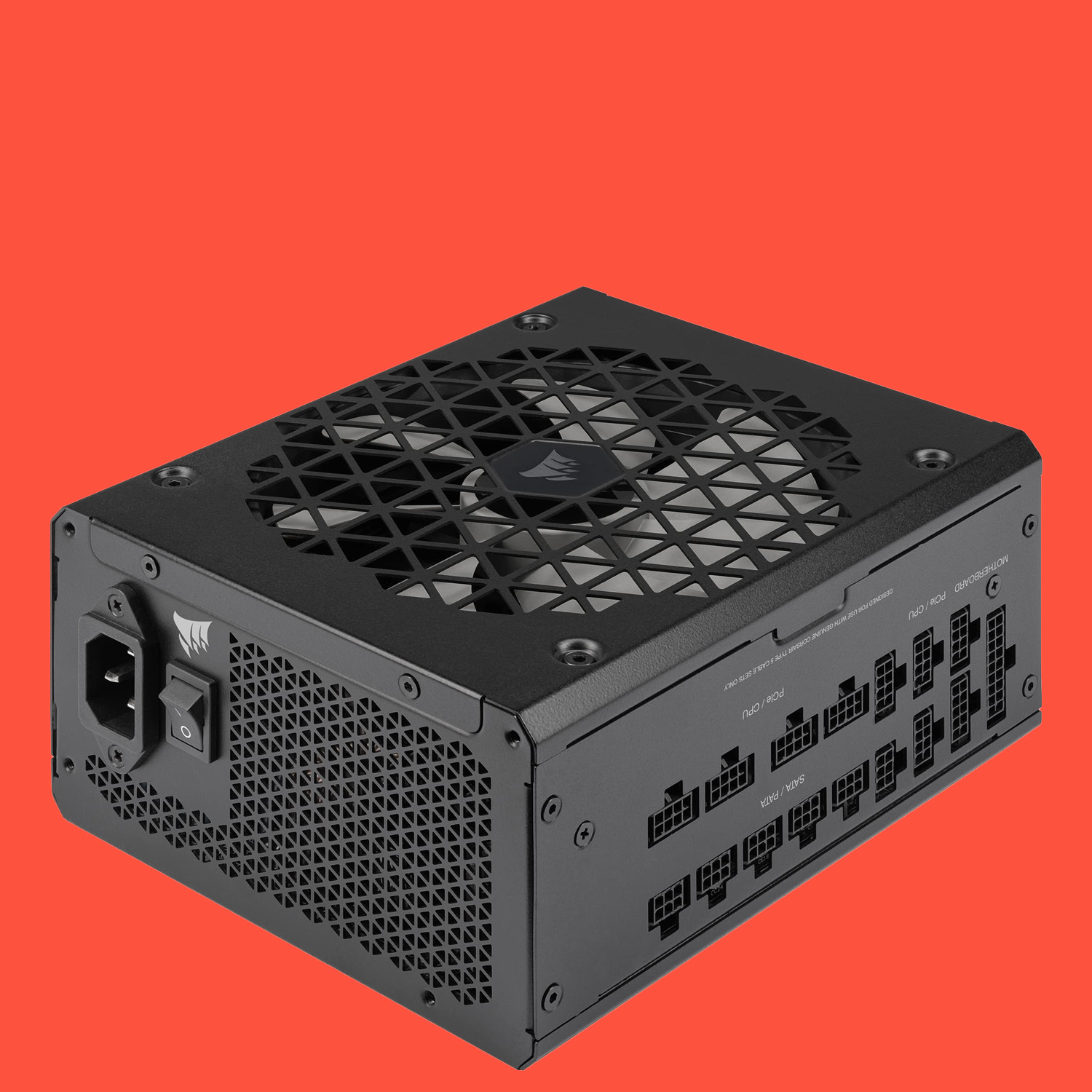
The most flexible
It's not often that a new idea takes hold in the world of power supplies. Yet we're sold on this sideways PSU, which offers greater flexibility for your build (in the right case).
Recent updates
This PSU guide was updated on January 26, 2024 to improve its readability.
The best power supply for PC gaming
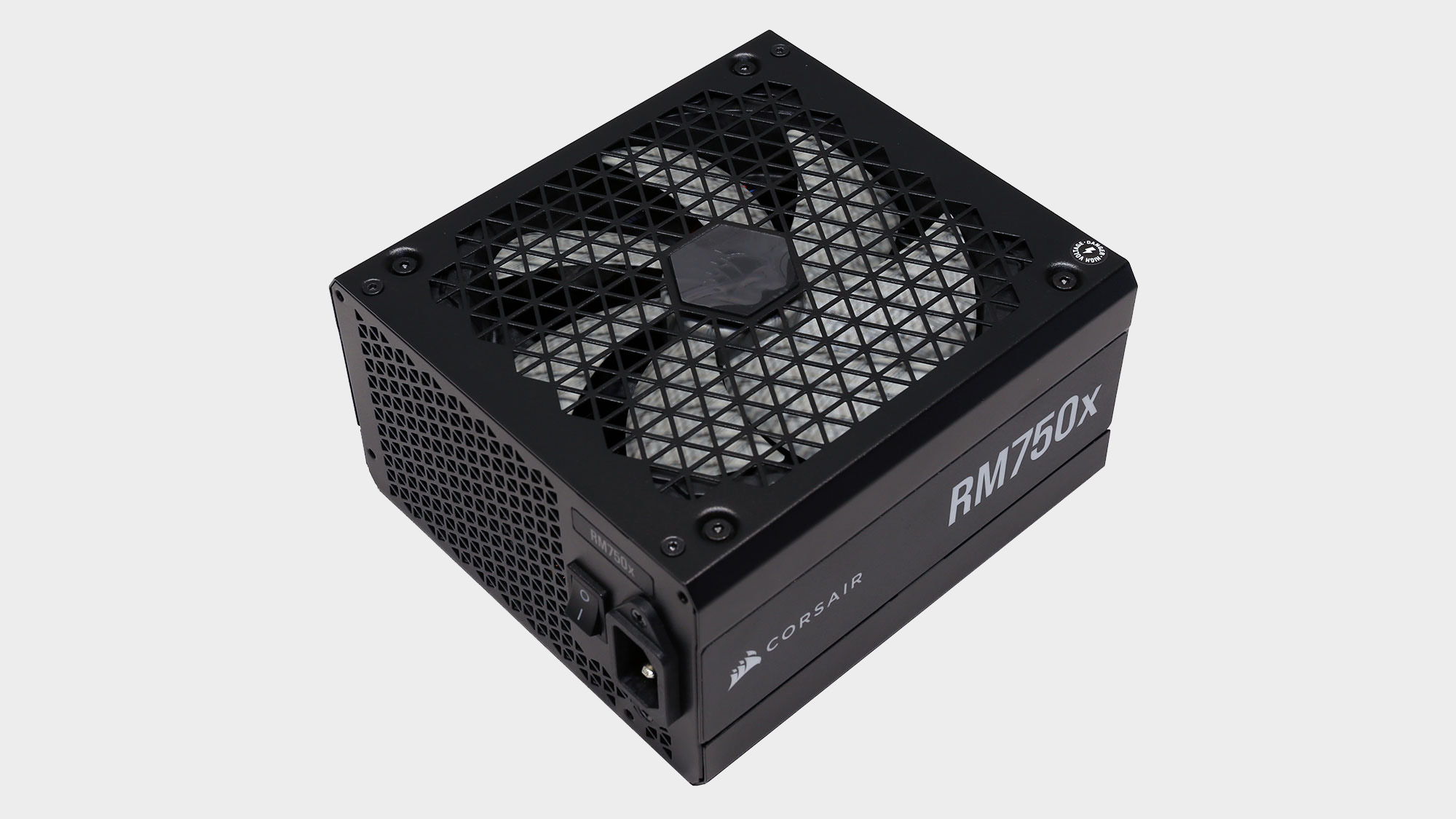
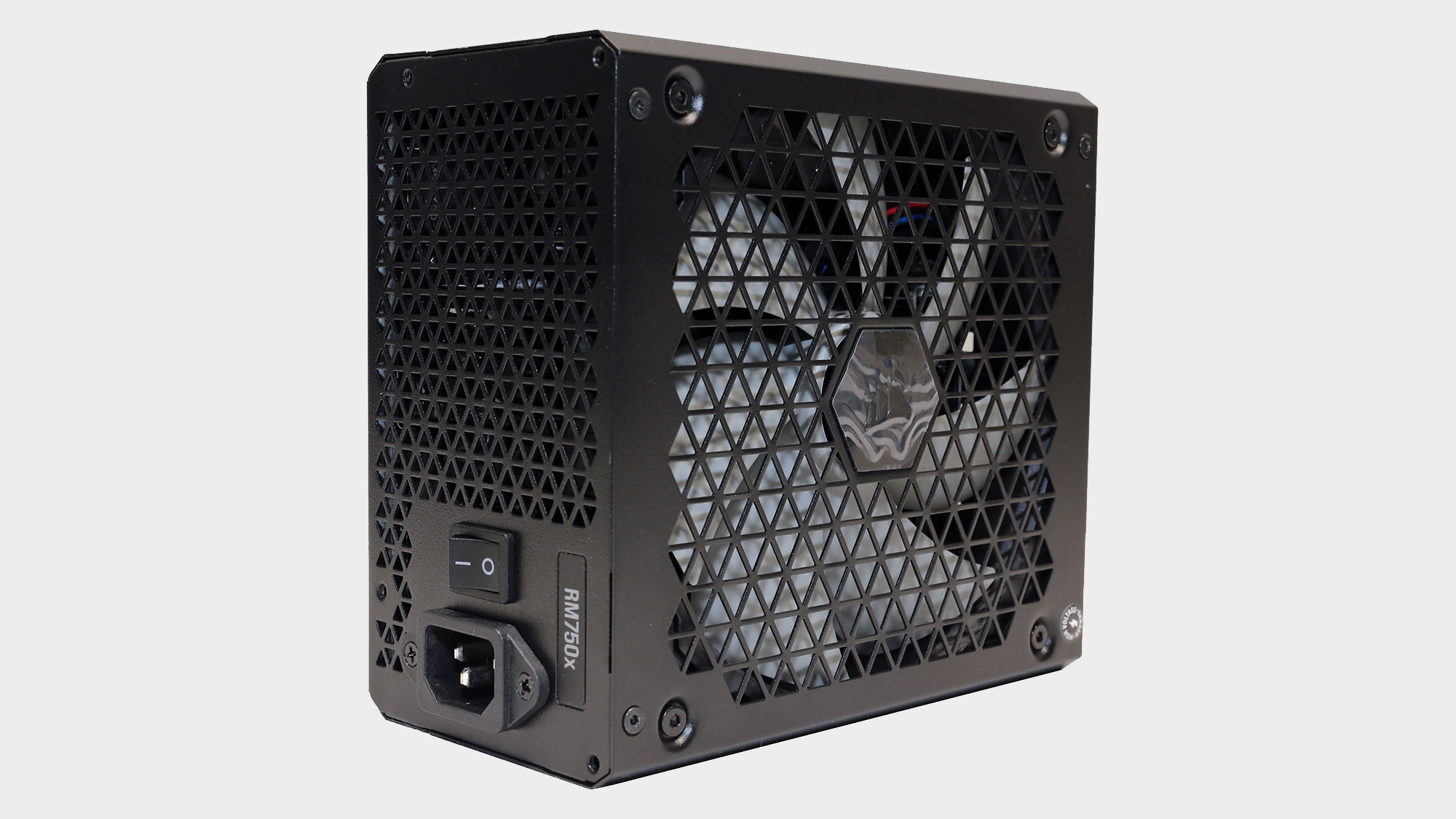
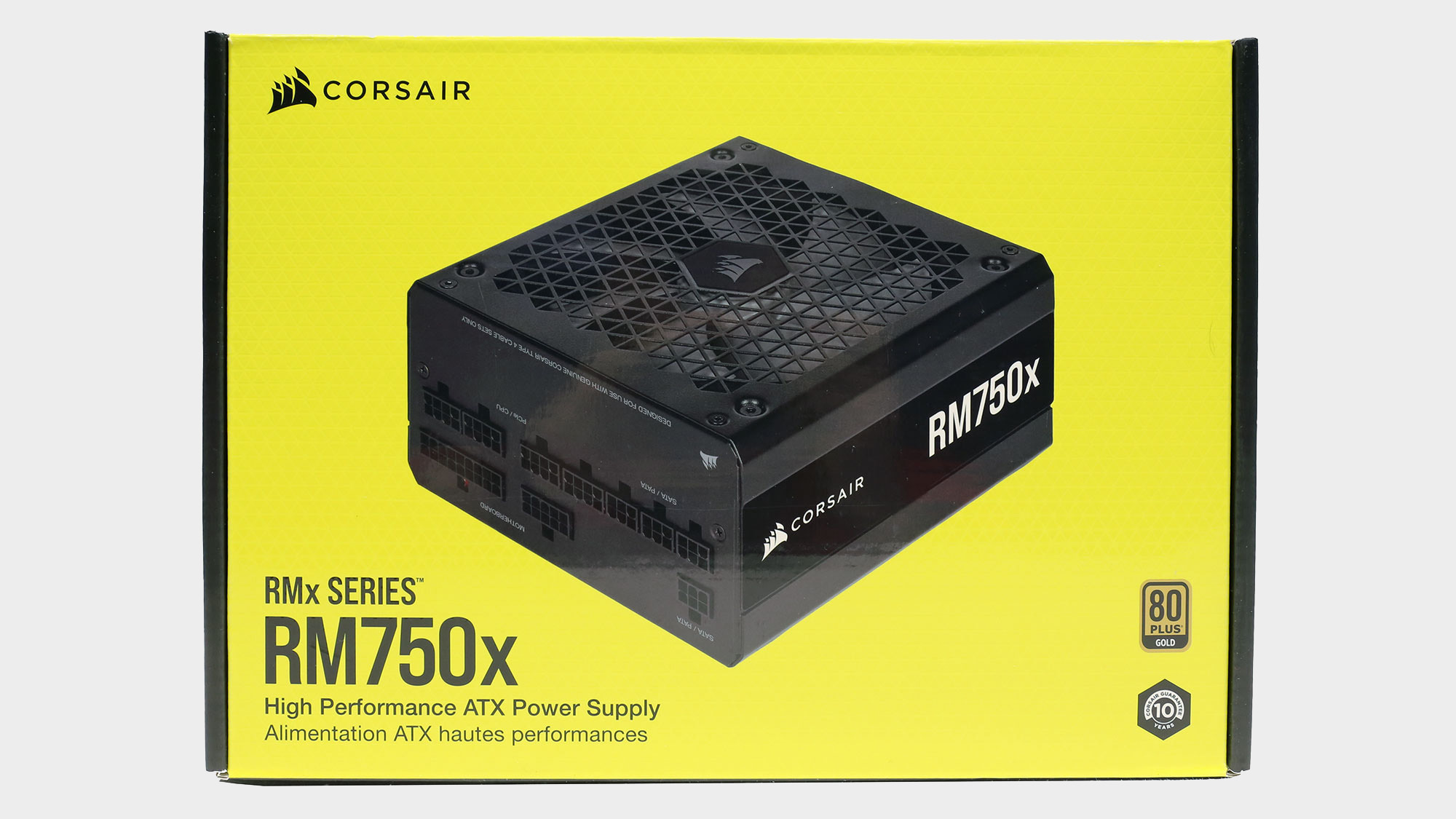
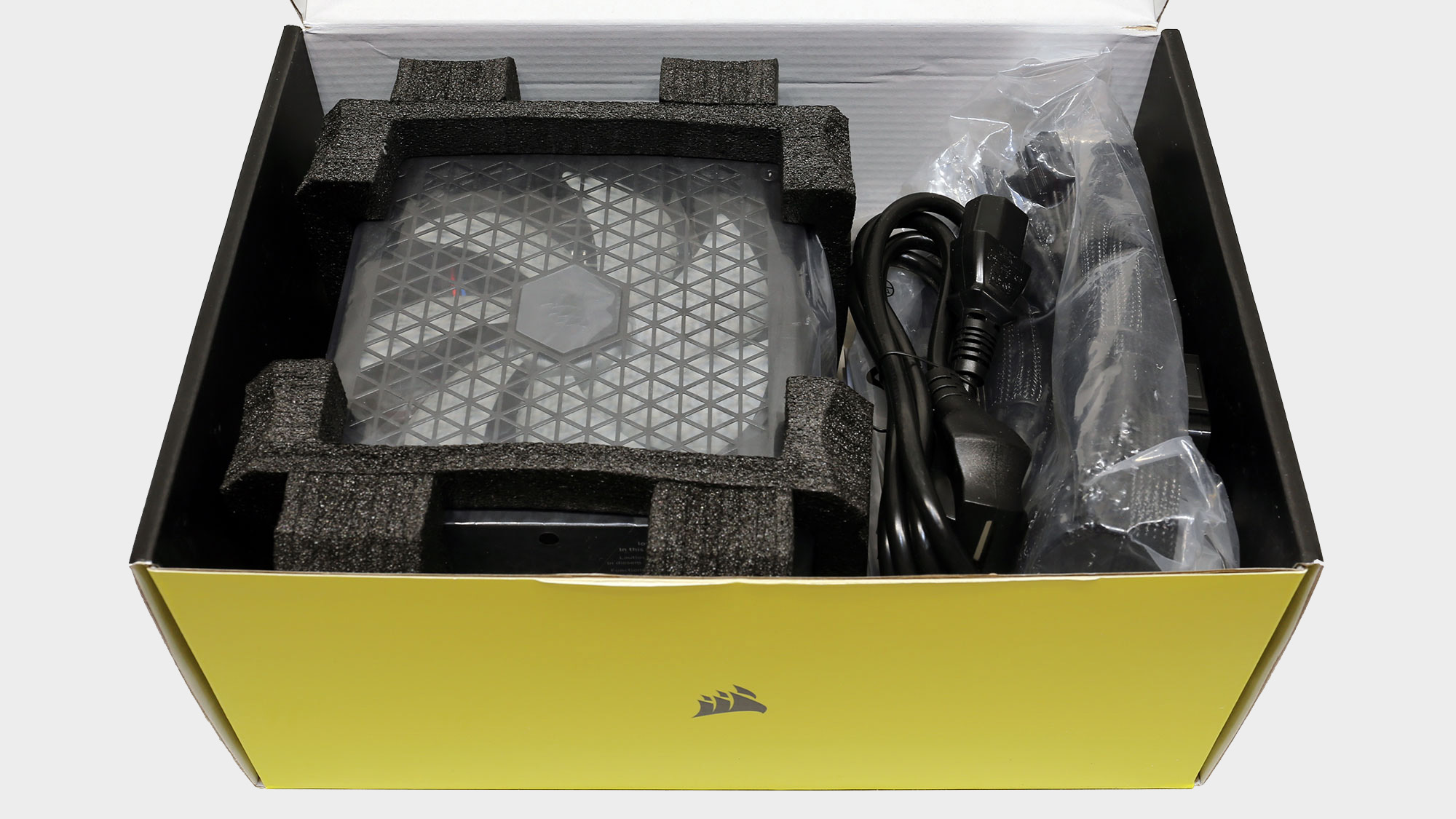
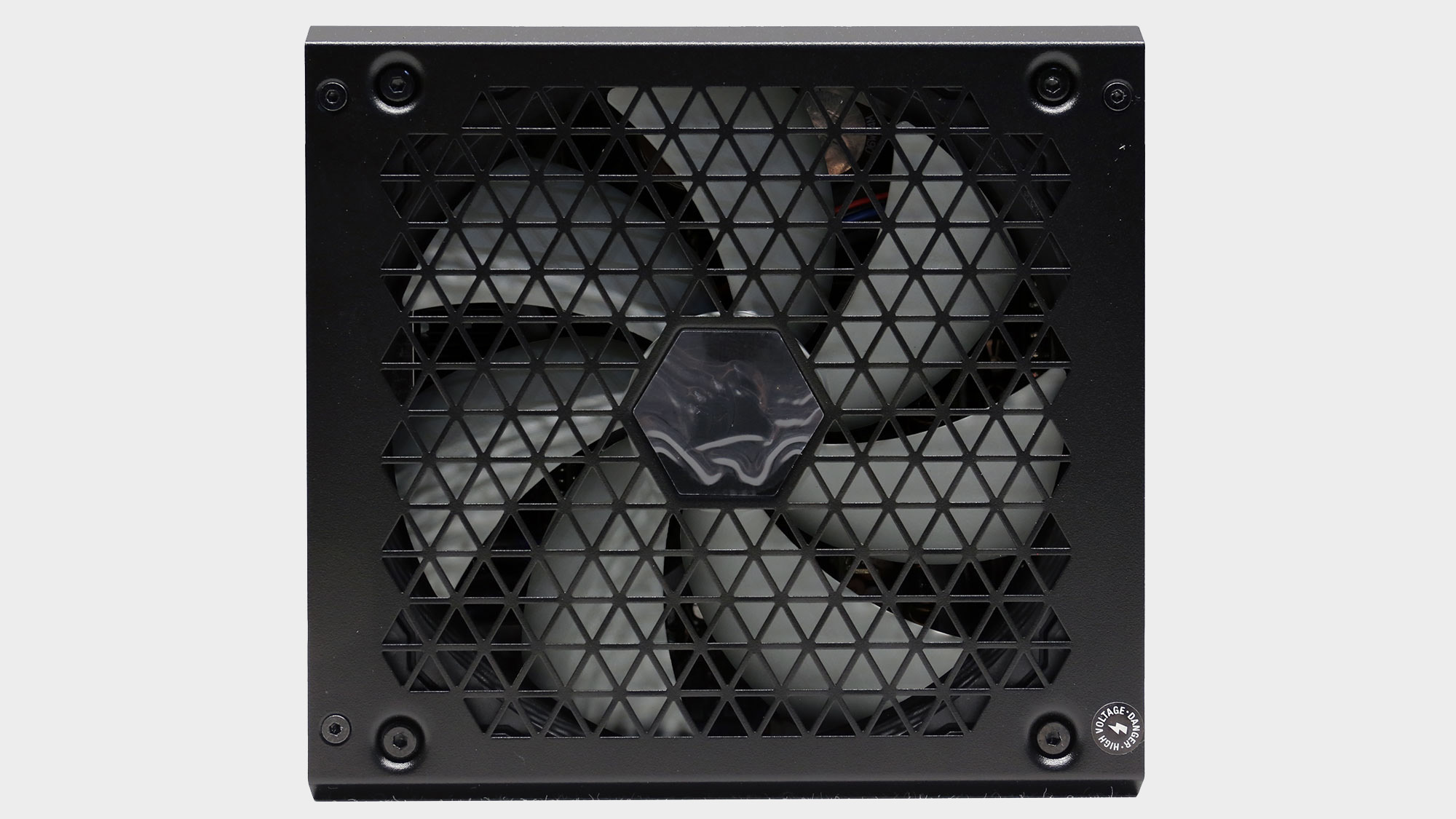
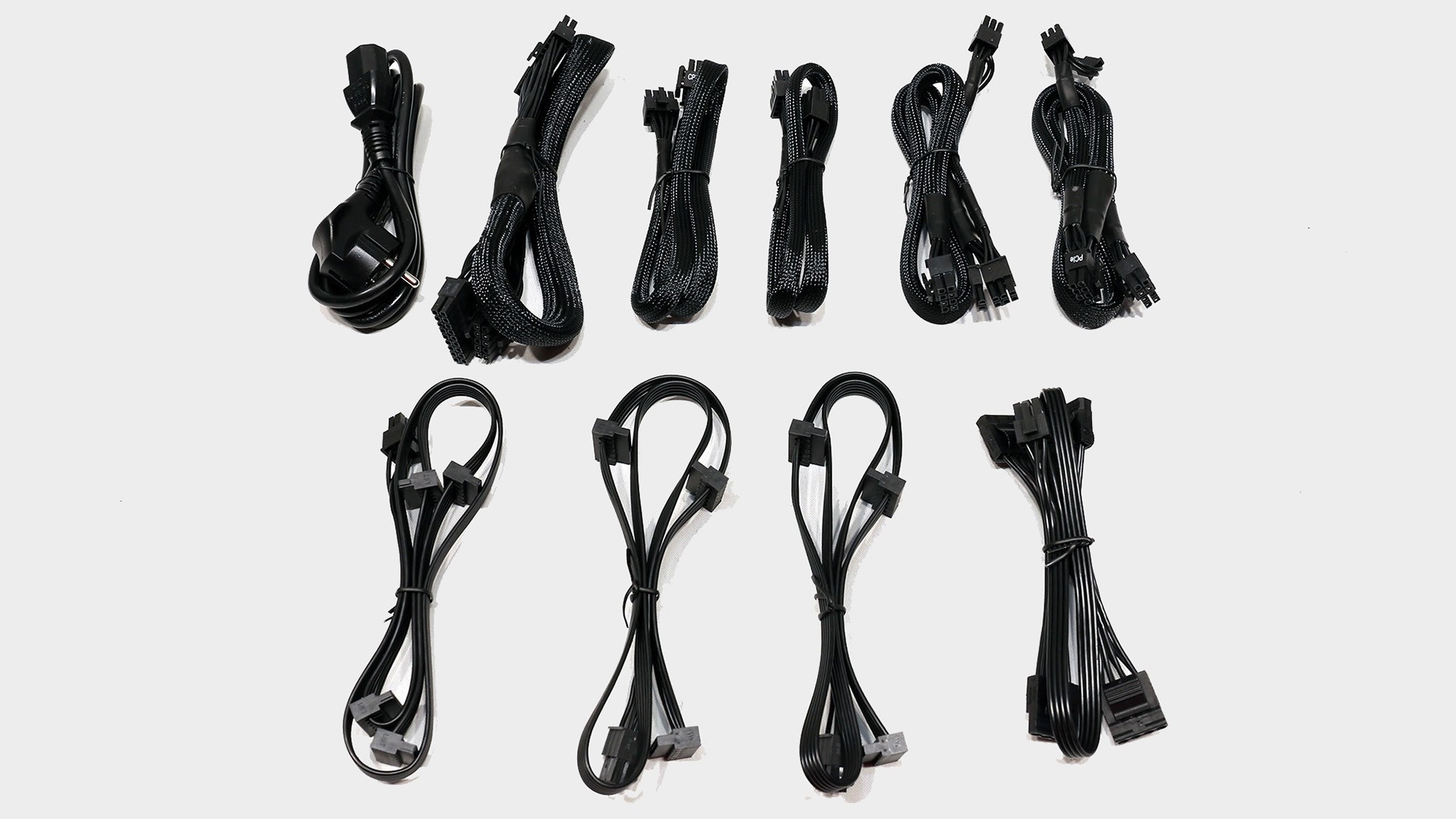
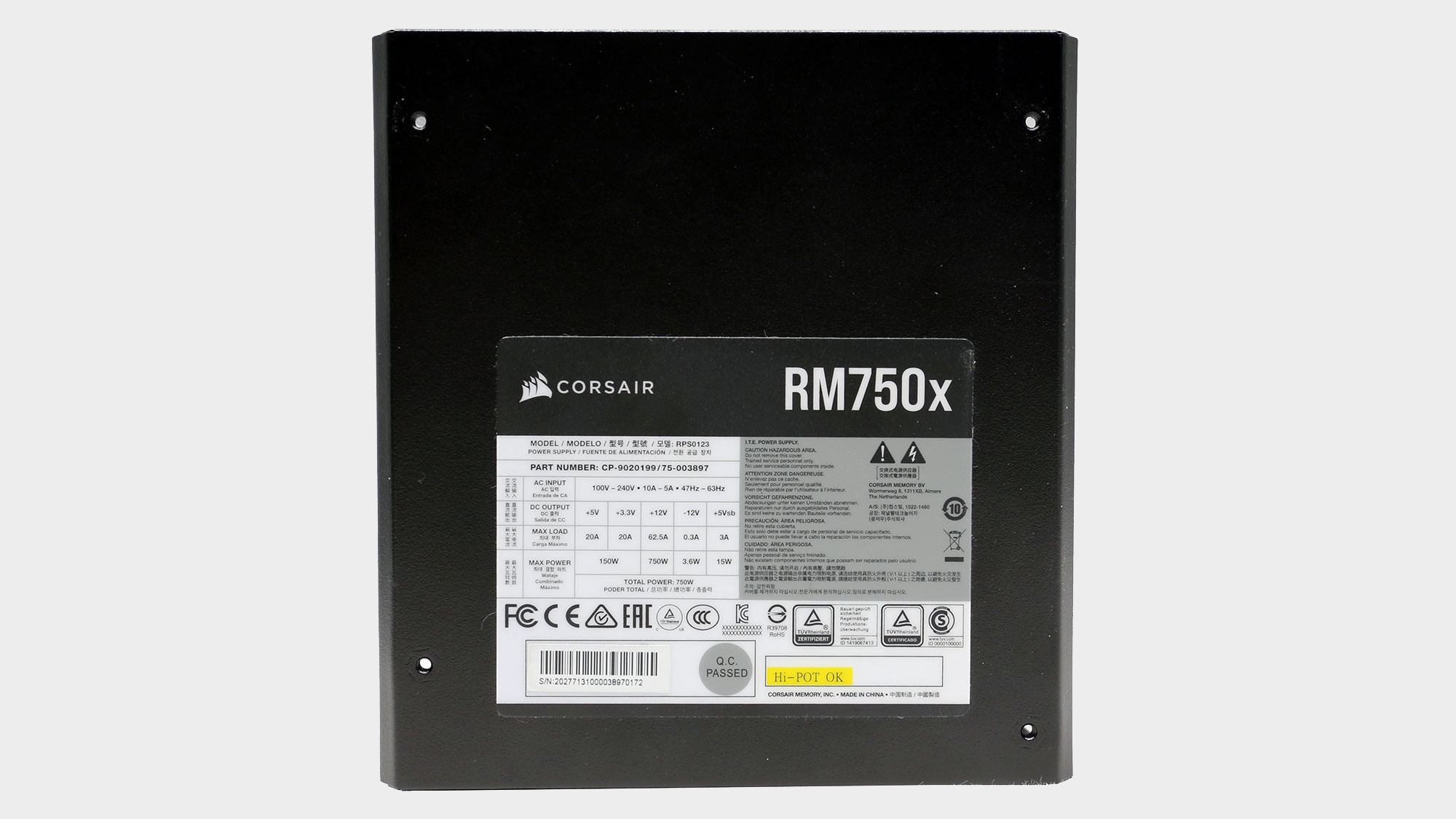
Specifications
Reasons to buy
Reasons to avoid
For most PC builders, the Corsair RM750x is the best PSU available. The newest version, introduced in 2021, managed to improve an already outstanding product. Corsair’s RMx line is among the best in the PSU market, combining high performance and reasonable prices, and the RM750x is clear proof of this. The competition is tough, but Corsair’s R&D manager, Jon Gerow (aka famed PSU reviewer Jonnyguru), and his team of engineers manage to create products that set the bar higher and higher.
The build quality is outstanding in this CWT platform, which is only available to Corsair. The caps on both primary and secondary sides are Japanese and the FETs, along with the magnetic levitation fan, won’t have a problem outliving the ten-year warranty.
The fan upgrade is a highly welcome feature, too. It boosts reliability, even under harsh conditions where most other fans would have issues in the long run. The cooling fan is the crucial part of every PSU, highly affecting its reliability, so it is important to use the best fan possible.
Read our full Corsair RM750X (2021) review.
The best 1KW power supply for PC gaming
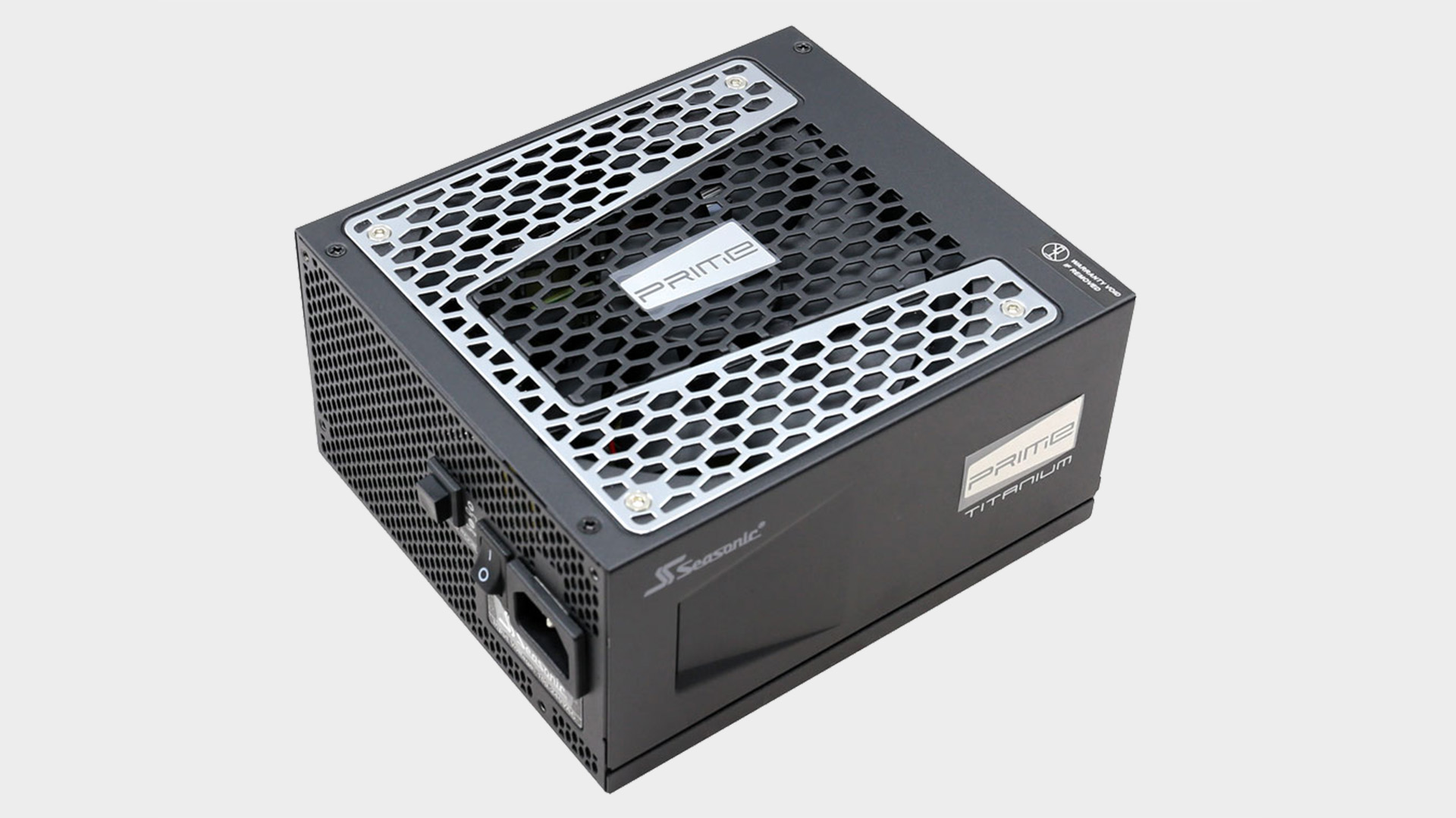
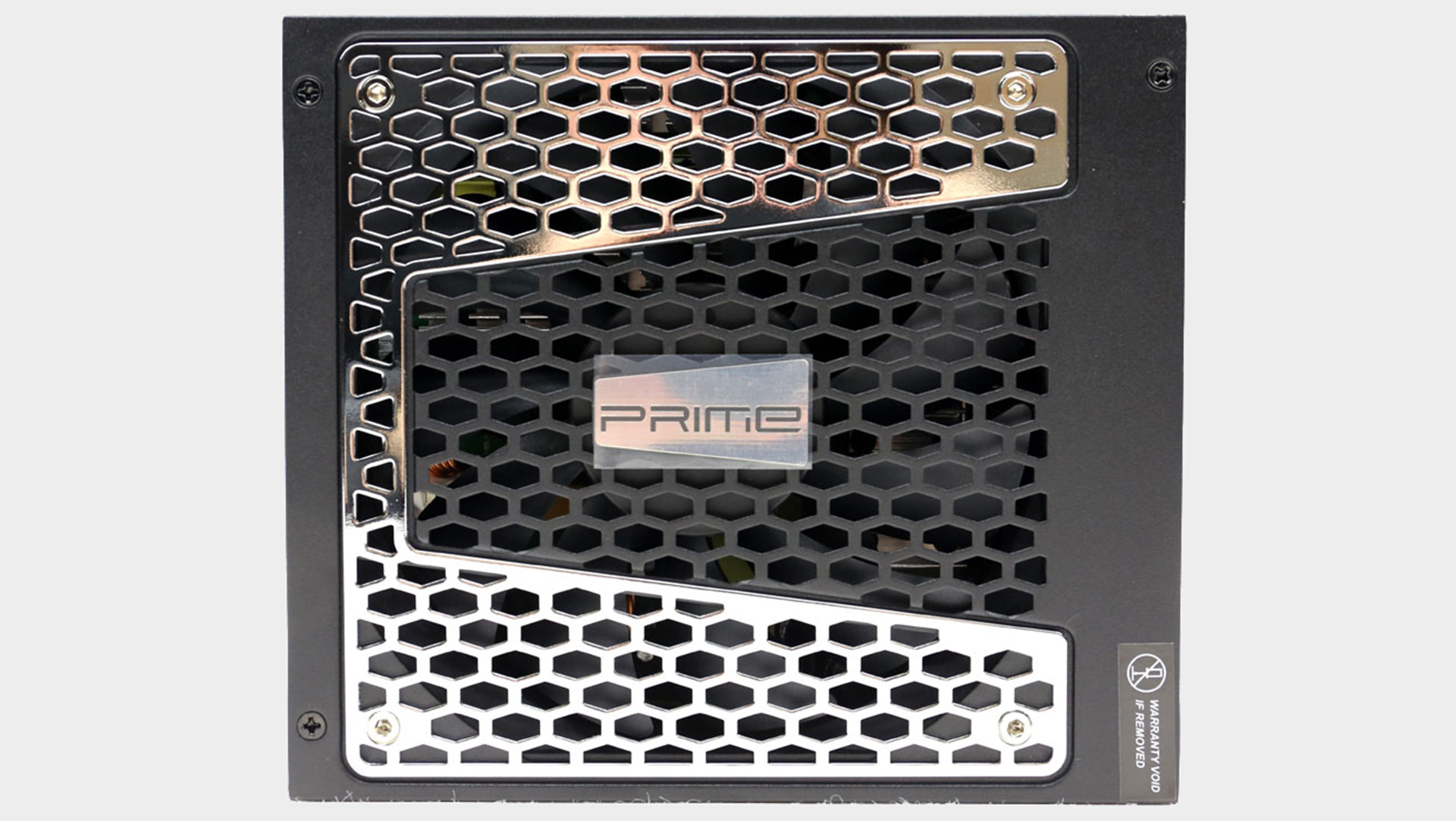
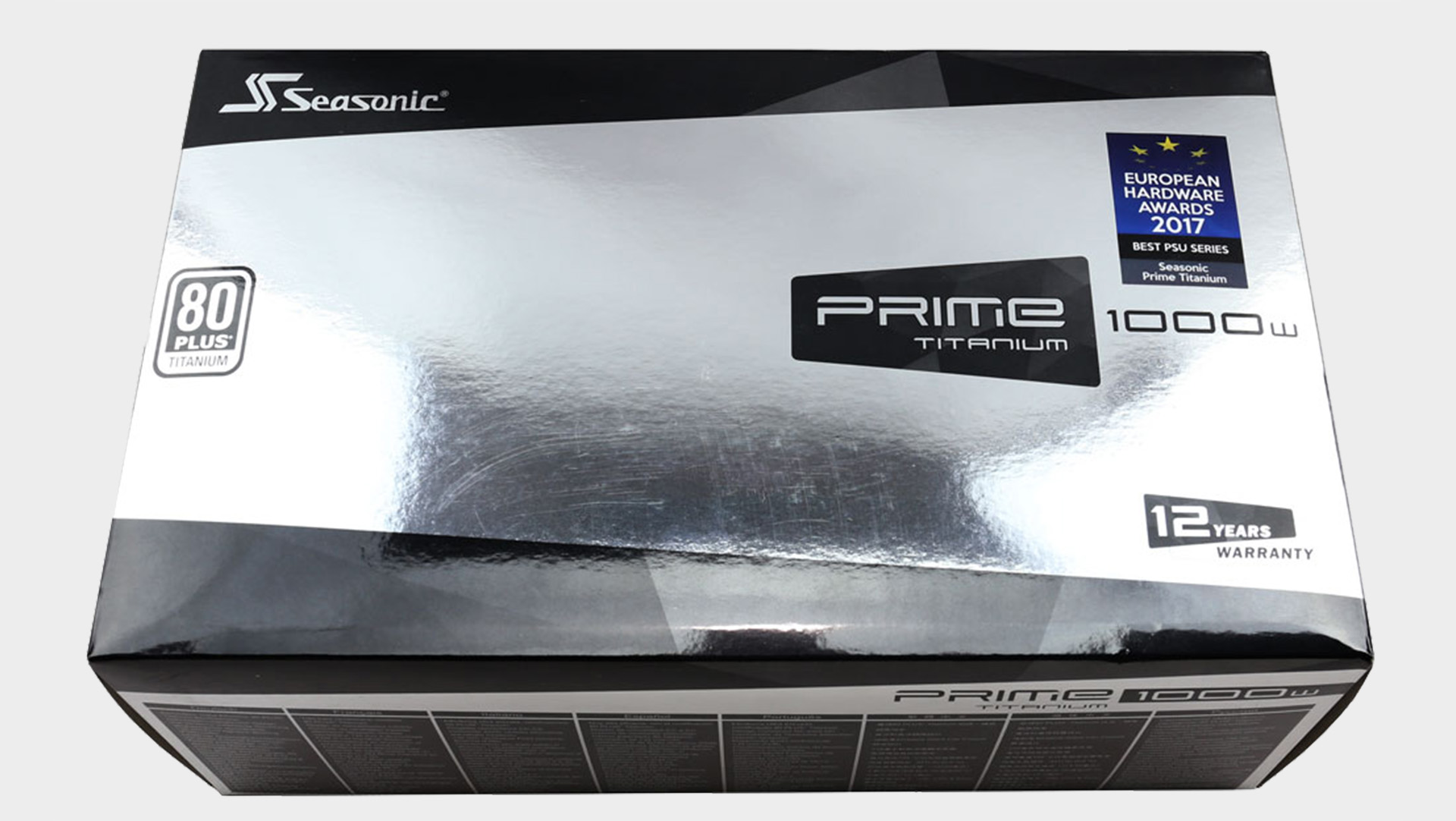
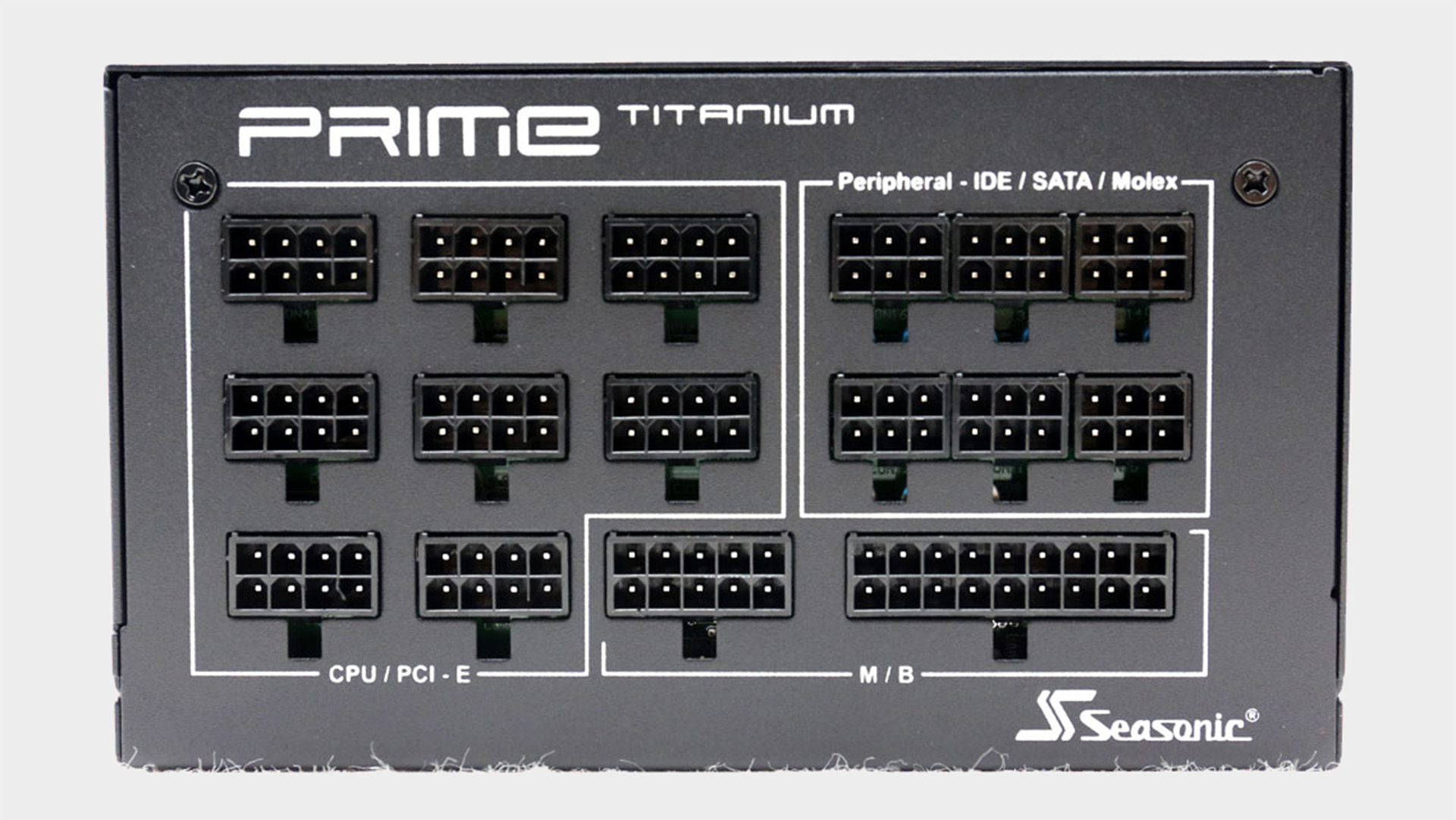
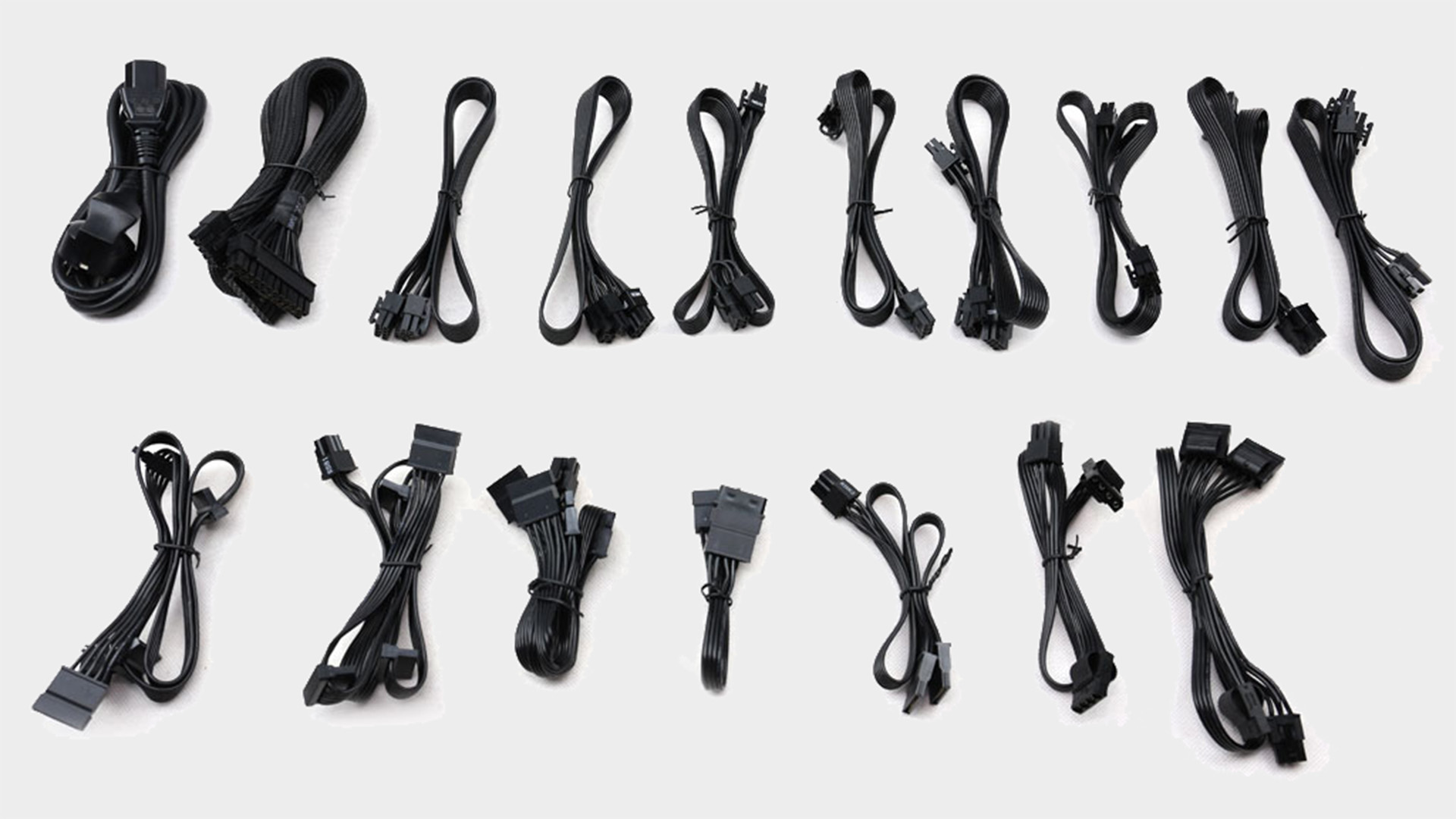
Specifications
Reasons to buy
Reasons to avoid
Seasonic hit the jackpot with its Prime platform, which starts from Gold efficiency and goes all the way up to Titanium. The TX-1000 is rated to Titanium, hence the name, and is the best 1KW power supply around today. Several high-impact brands have already used Seasonic's base platform in their own PSUs, including Asus with its ROG Thor 1200W, Corsair's AX line, and Antec with its legendary Signature line.
If Seasonic could make more of these units, I would expect more brands to get in line to source them, despite their high prices. The majority of buyers prefer low-efficiency and more affordable power supplies, unfortunately. Still, when an OEM is confident enough to provide a platform with a twelve-year warranty, you know that this is a bullet-proof product.
At light loads, the PSU achieves some of the highest efficiency readings we have seen.
The Seasonic TX-1000 is a great power supply featuring top-notch build quality. Besides great soldering work, it also uses Japanese capacitors everywhere, including many polymer caps besides electrolytic ones and a fluid dynamic bearing fan.
Seasonic's engineers did their best to offer sky-high efficiency under all load regions and silent operation, at the same time, along with increased reliability. Performance-wise, this PSU belongs to the top league since it achieves tight load regulation on all rails, it has terrific ripple suppression without using the annoying in-line caps, and its hold-up time is great. On top of that, the 5VSB rail's efficiency is high, and at light loads, the PSU achieves some of the highest efficiency readings we have seen so far.
Another asset of the TX-1000 is that it has six PCIe connectors on dedicated cables. You won't have a problem powering energy-hungry graphics cards where the use of a single cable with two PCIe connectors should be avoided.
Read our full Seasonic TX 1000 review.
The best cheap power supply for PC gaming
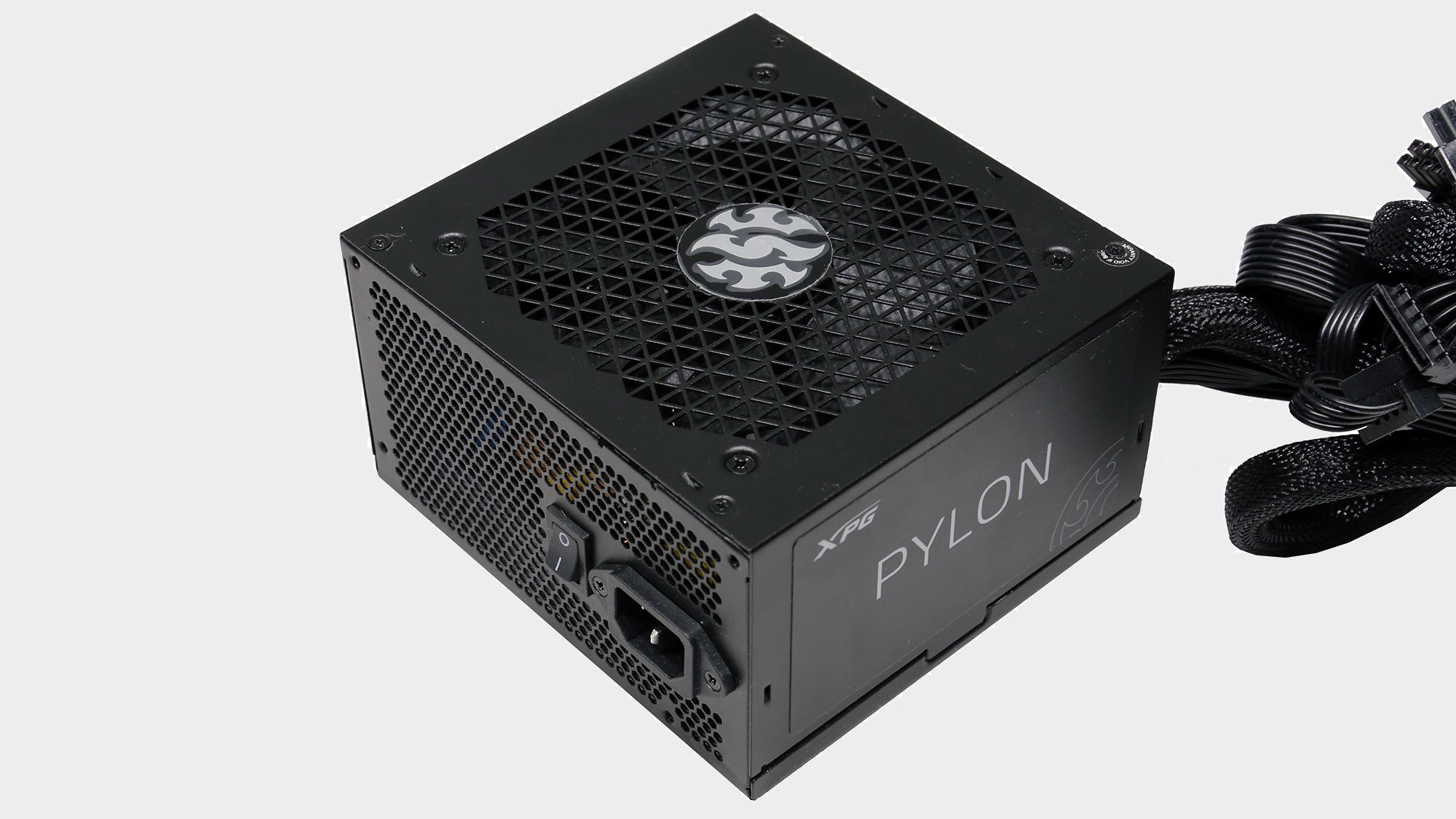
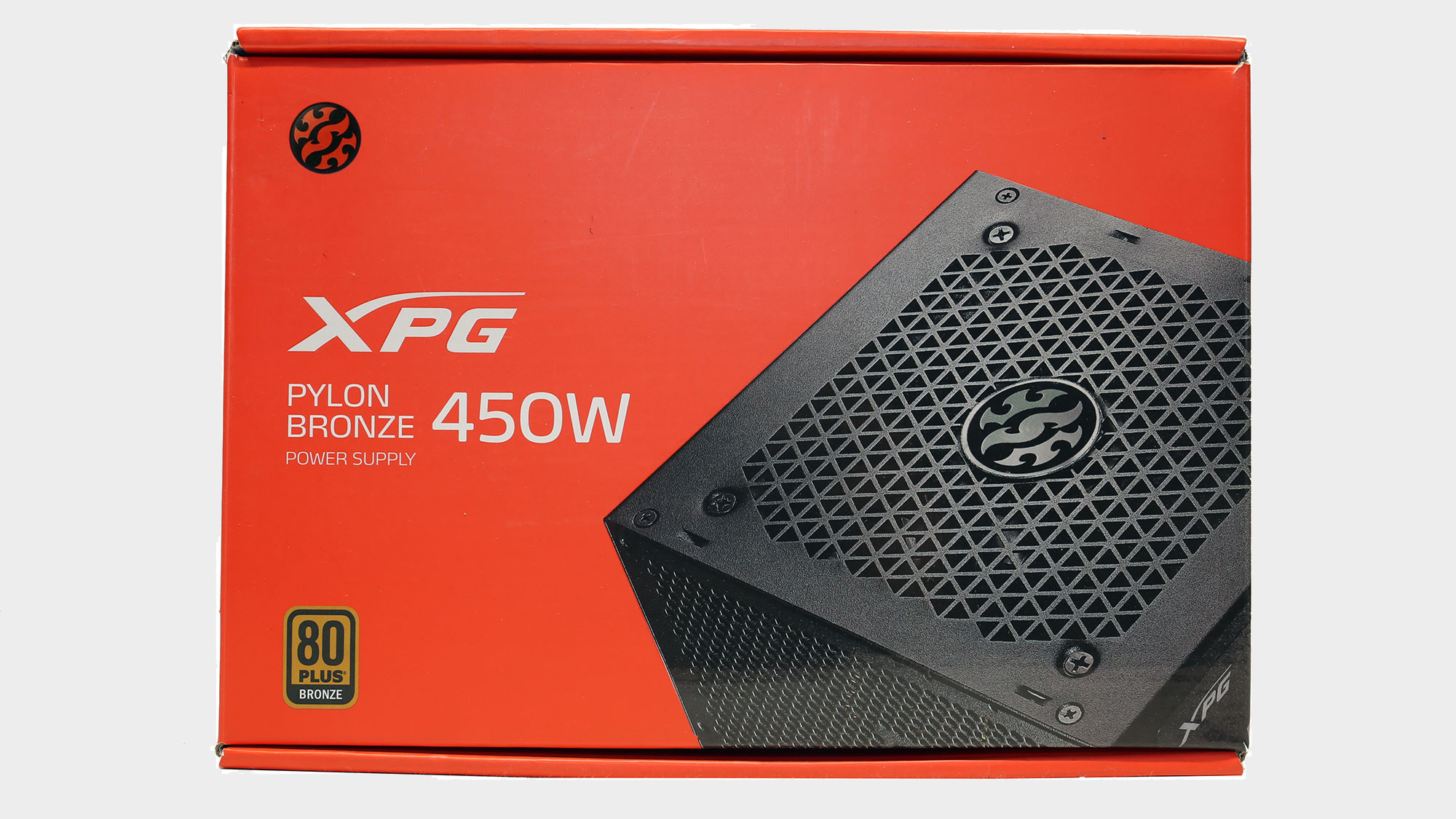
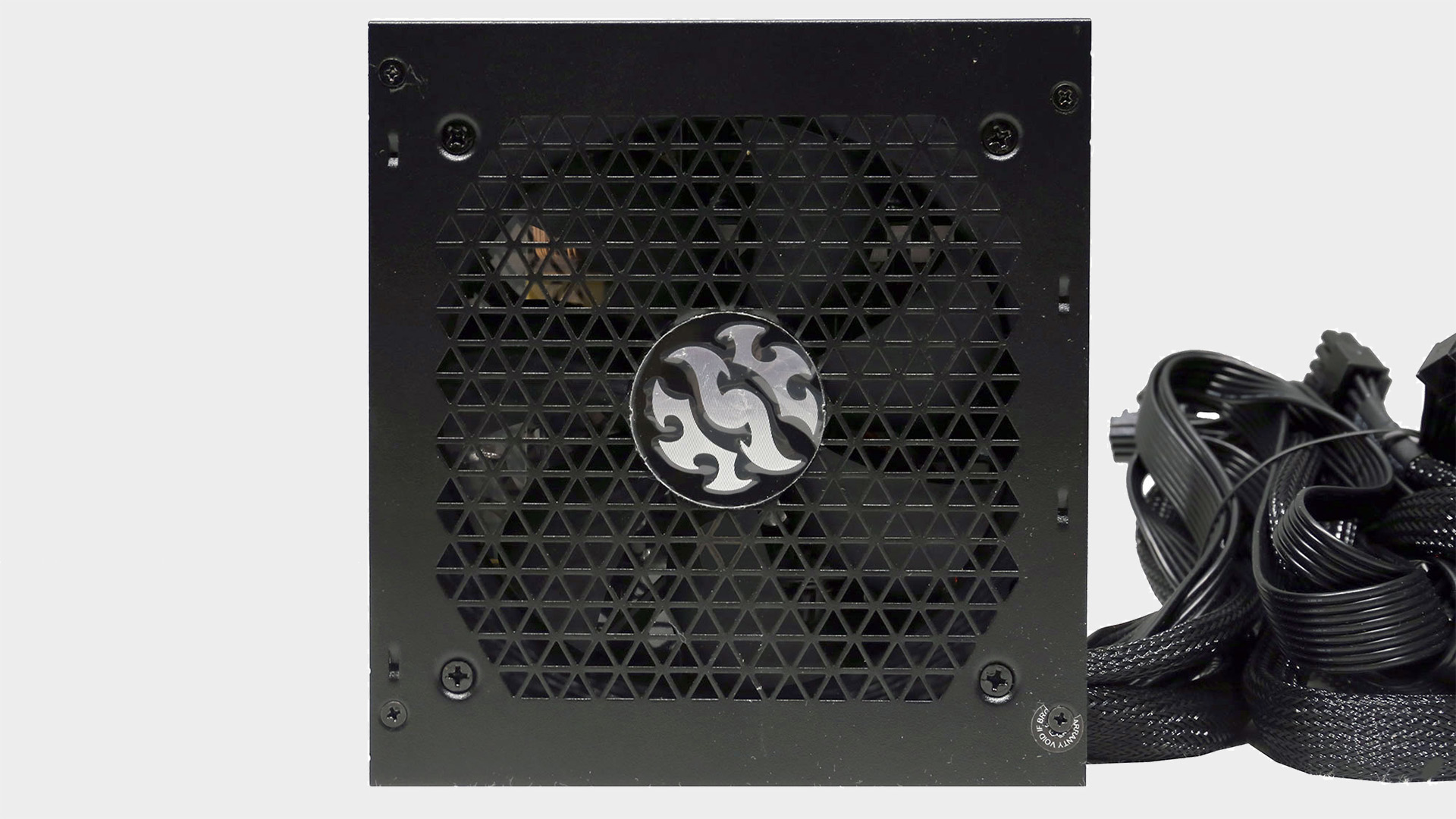
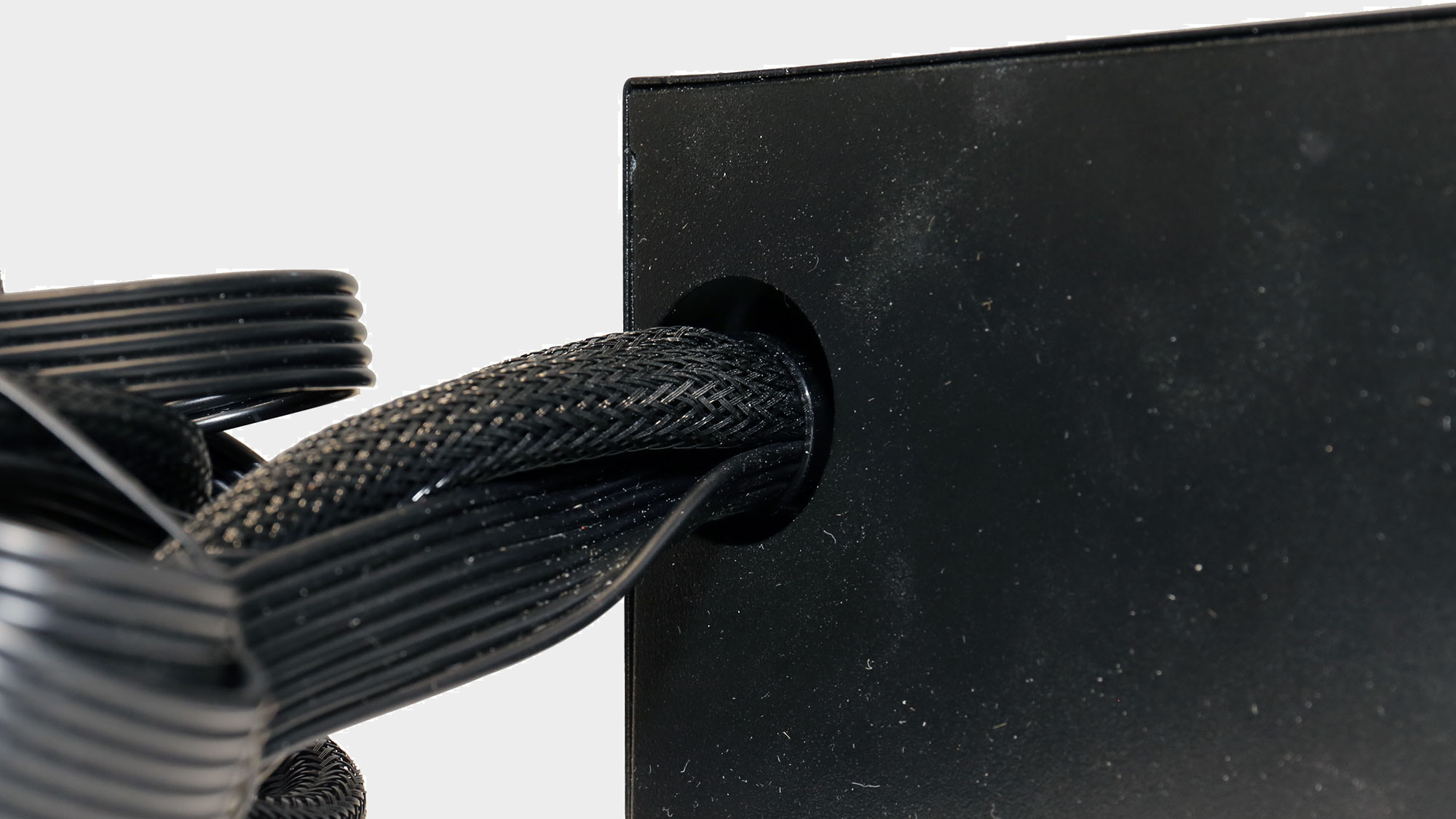
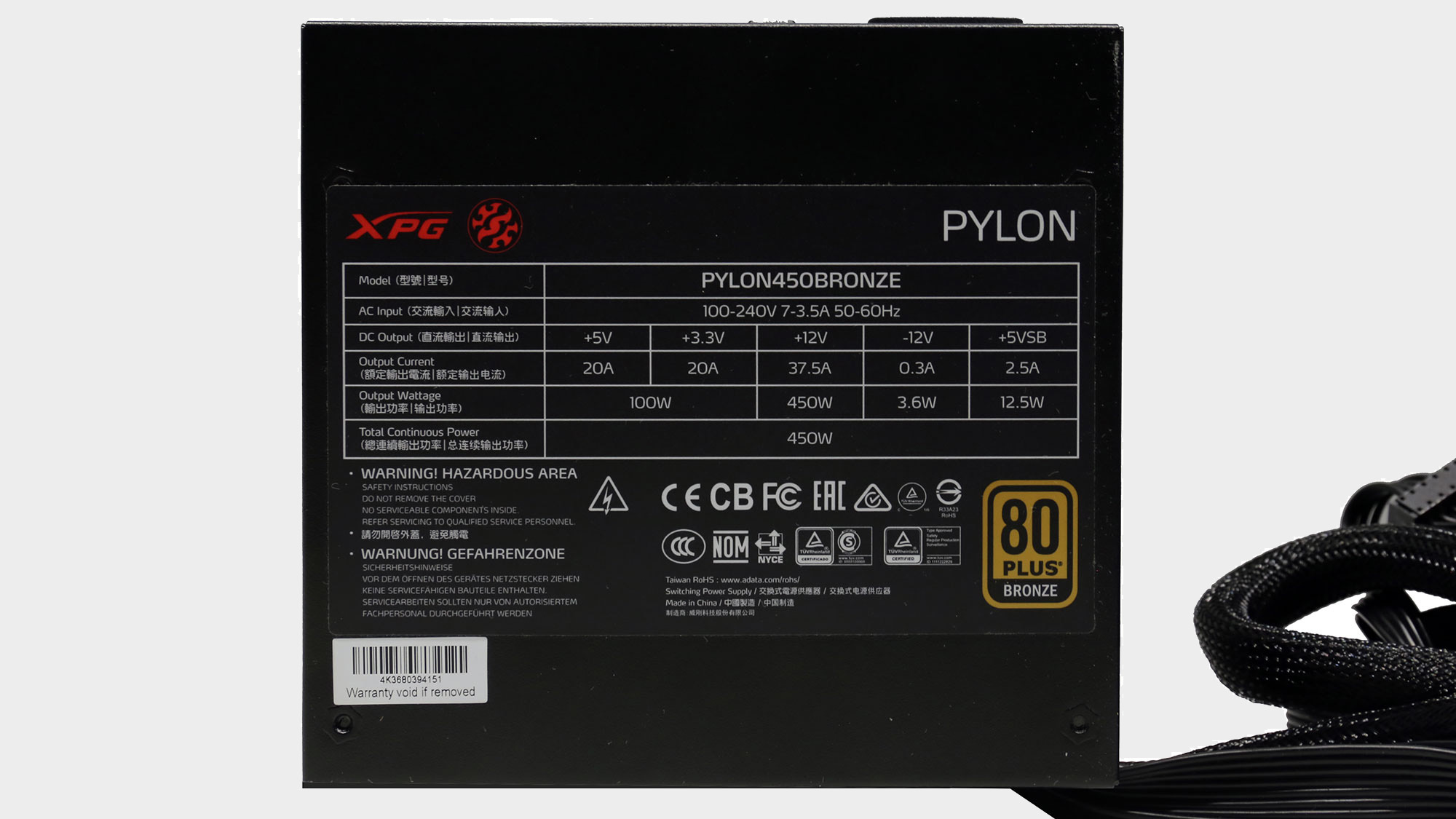
Specifications
Reasons to buy
Reasons to avoid
This XPG Pylon is our favourite PSU for low wattage nowadays, covering just the bare essentials in terms of PC performance, as Corsair decided to withdraw the popular CX450 model. That used a modern but expensive platform, making it hard to keep its price low. From the moment the CX450 is out of the equation, the road is open for the XPG Pylon 450 to shine.
From 2022, XPG upgraded the warranty on all Pylon models to five years to keep up with the competition. Given the fluid dynamic bearing fan and the reliable platform, the warranty upgrade makes sense. The significant compromise that had to be made to keep the cost down was the use of an outdated platform.
The non-modular cable design won’t please most users, but modular cables would notably affect the final price, so they had to go to. Given the not-so-high number of cables in this PSU, the non-modular design isn't the worst. Thankfully, the five-year warranty that XPG provides is the cherry on top of this product.
Read our full XPG Pylon 450 review.
The best low-capacity power supply for PC gaming
Best CPU for gaming | Best graphics card | Best gaming motherboards
Best SSD for gaming | Best DDR4 RAM | Best PC cases
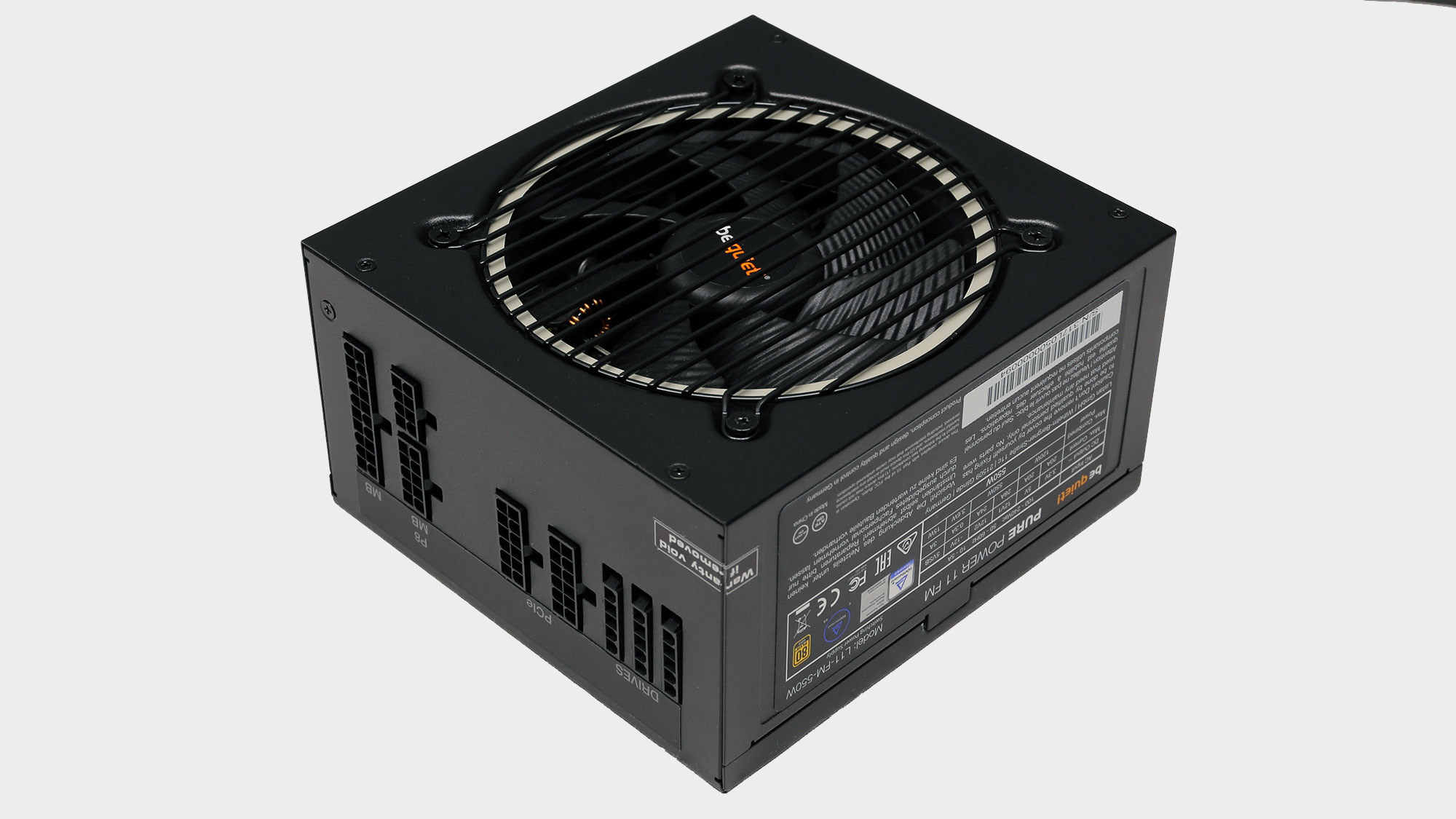
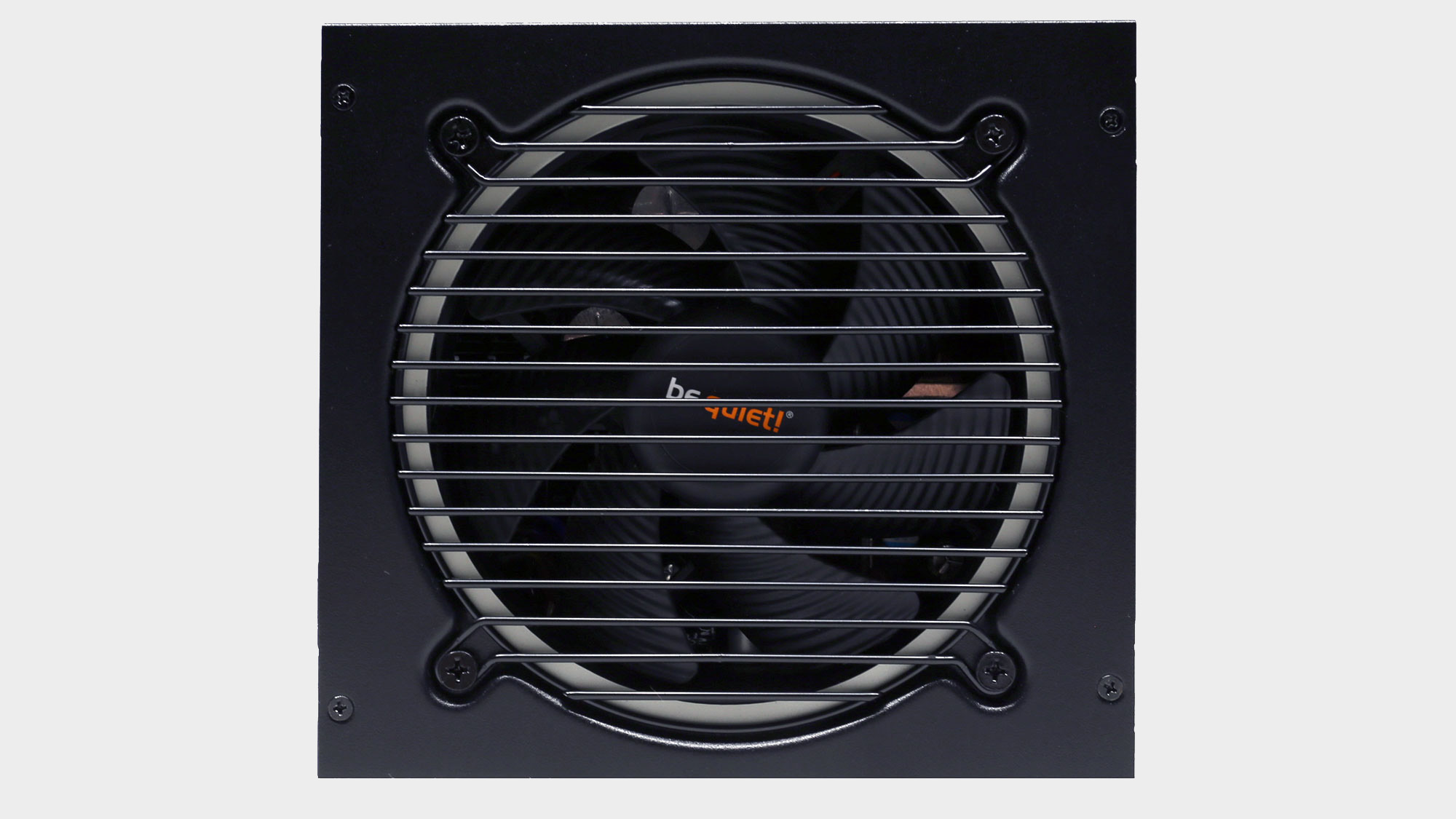
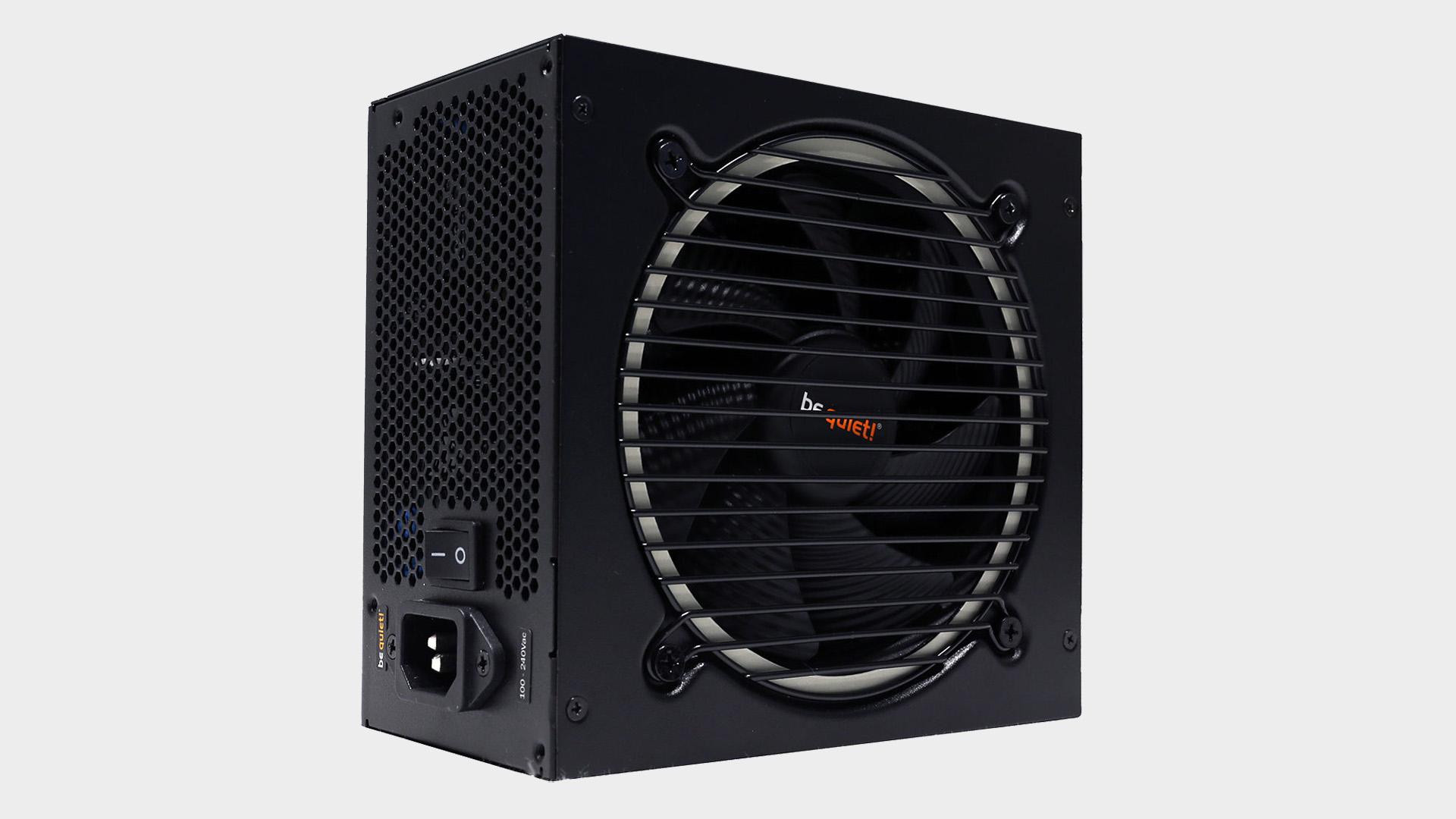
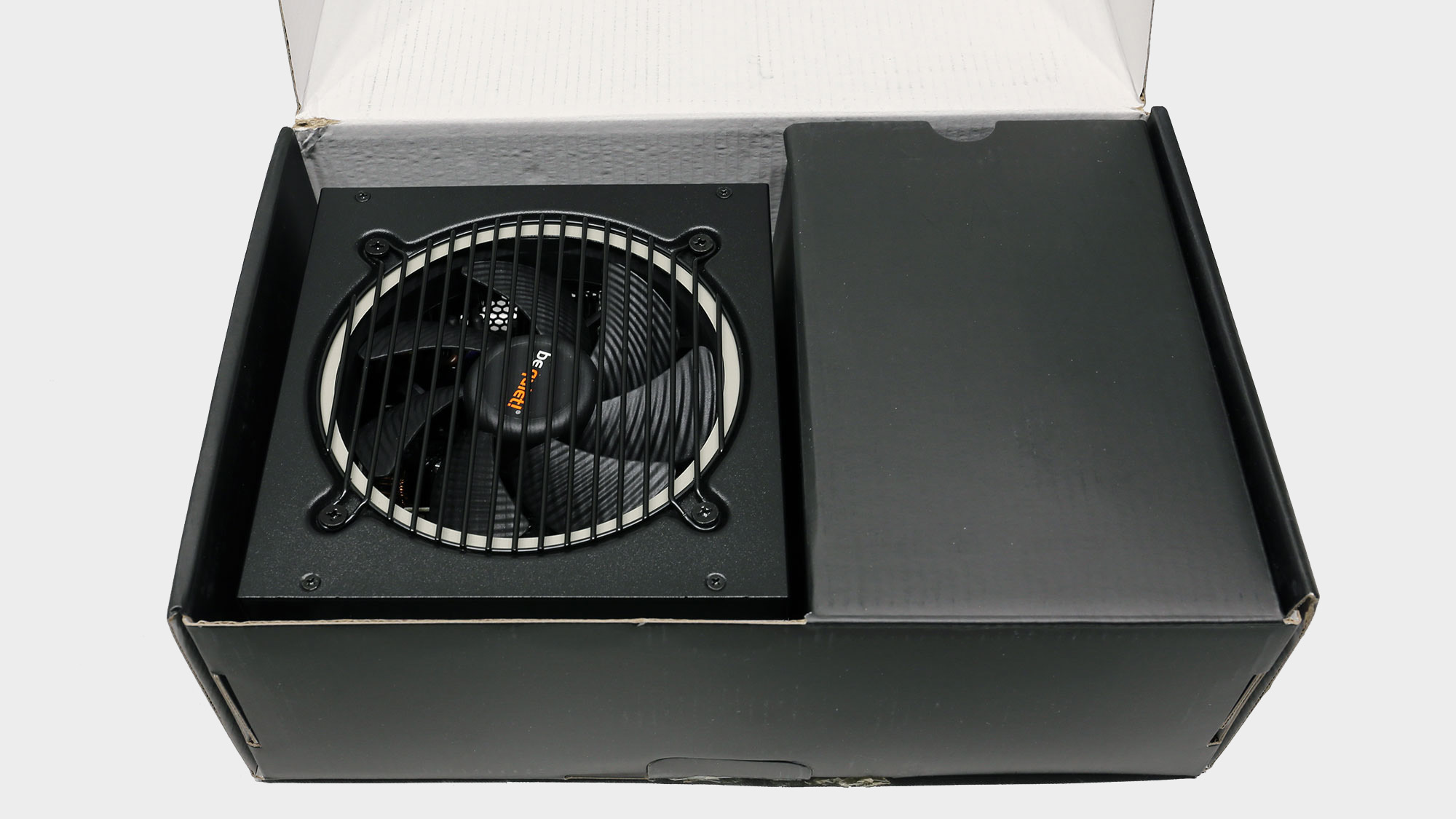
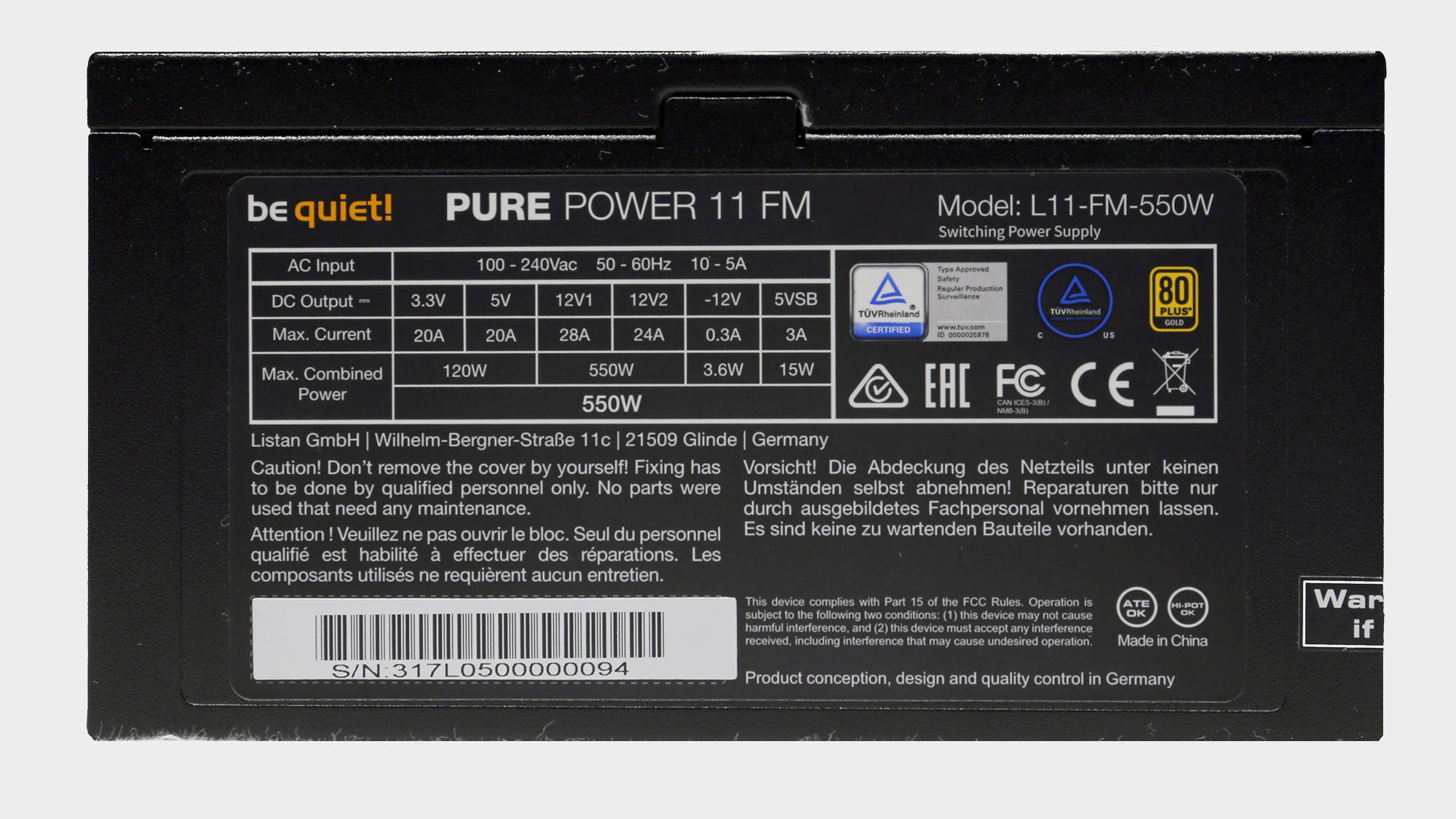
Specifications
Reasons to buy
Reasons to avoid
Be quiet! has developed a unique platform alongside OEM partner Channel Well Technology for its Pure Power 11 FM line, and the results are fantastic. The Pure Power 11 FM with 550W capacity is our top choice for a low-capacity power supply, and it is ideal for not demanding systems where users require a top-quality PSU under $100.
The PSU is 80 PLUS Gold and Cybenetics Gold certified in efficiency and has a Cybenetics A noise rating, proving it is quiet. The dimensions are standard, with 160mm depth, and the cooling fan uses a rifle bearing for increased reliability. The five-year warranty is half than what the competition provides (e.g., the Corsair, RM550x). Still, you cannot call it short.
The Pure Power 11 FM 550 showed in testing that it has no problem facing intense competition from Corsair, Seasonic, EVGA, Cooler Master, and others. Perhaps its best competition is the Seasonic Focus Plus Platinum 550W, but this is still the outright winner.
Read our full BeQuiet! Pure Power 11 FM 550W review.
The best high-capacity power supply for PC gaming
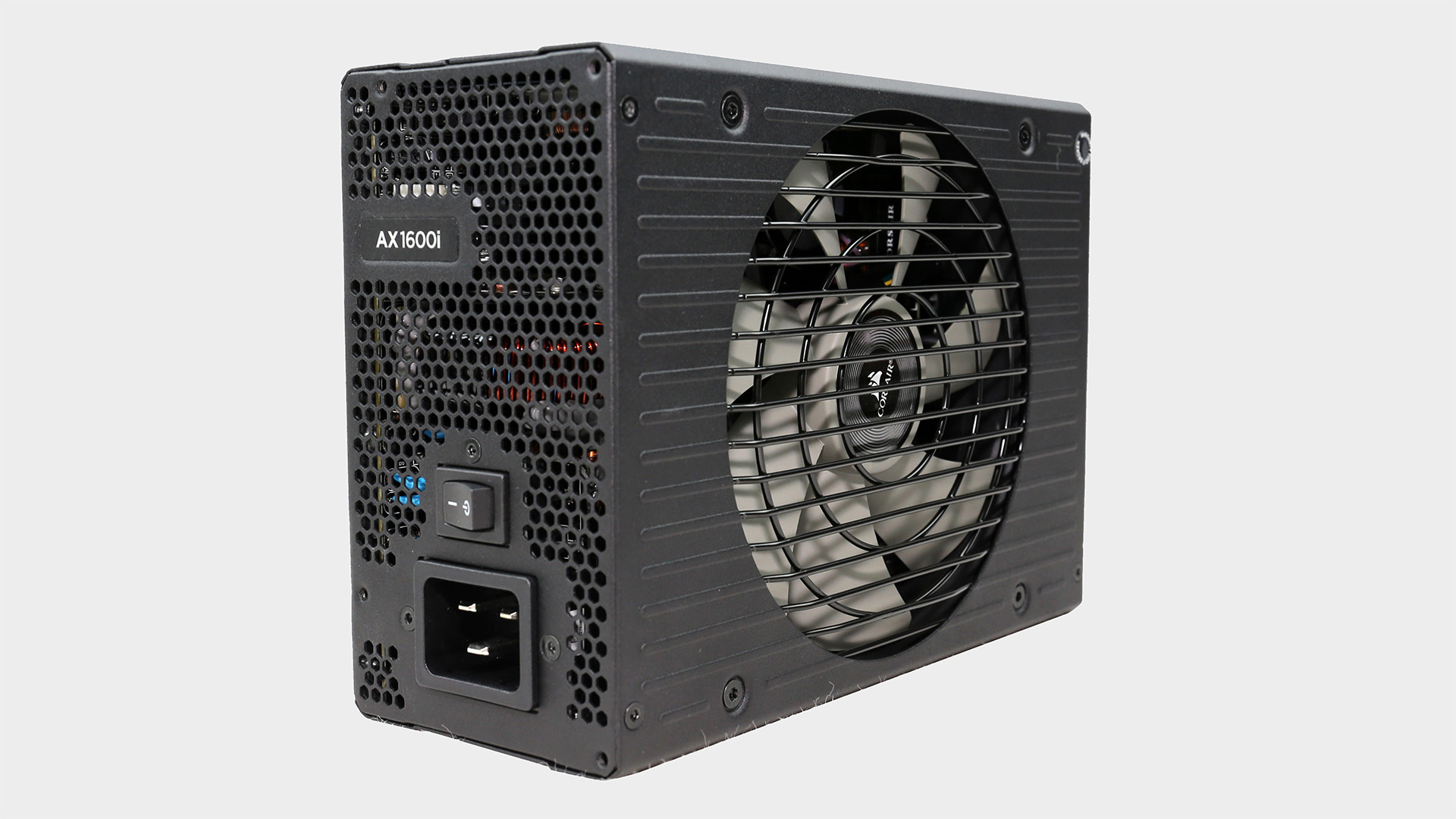
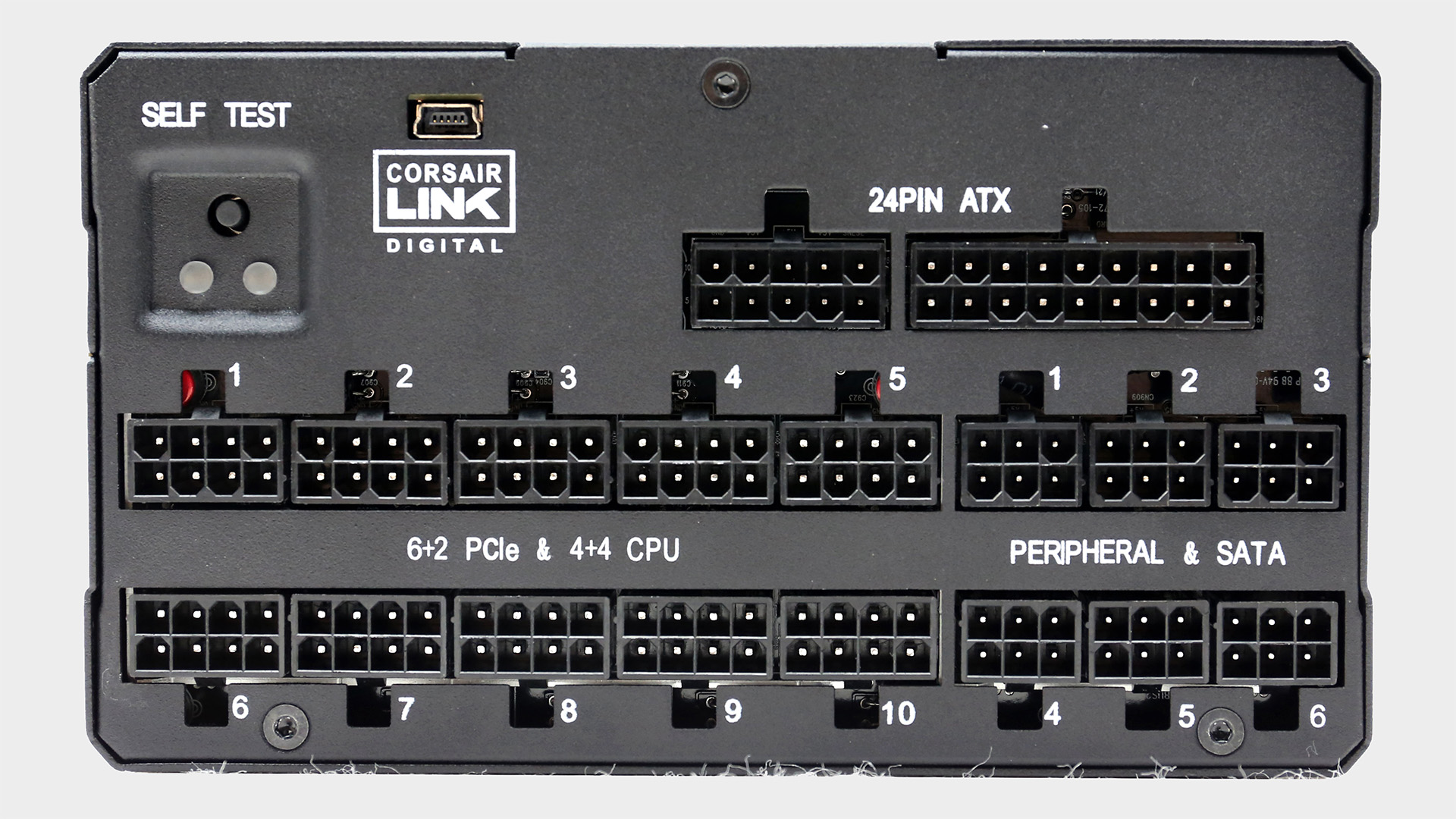
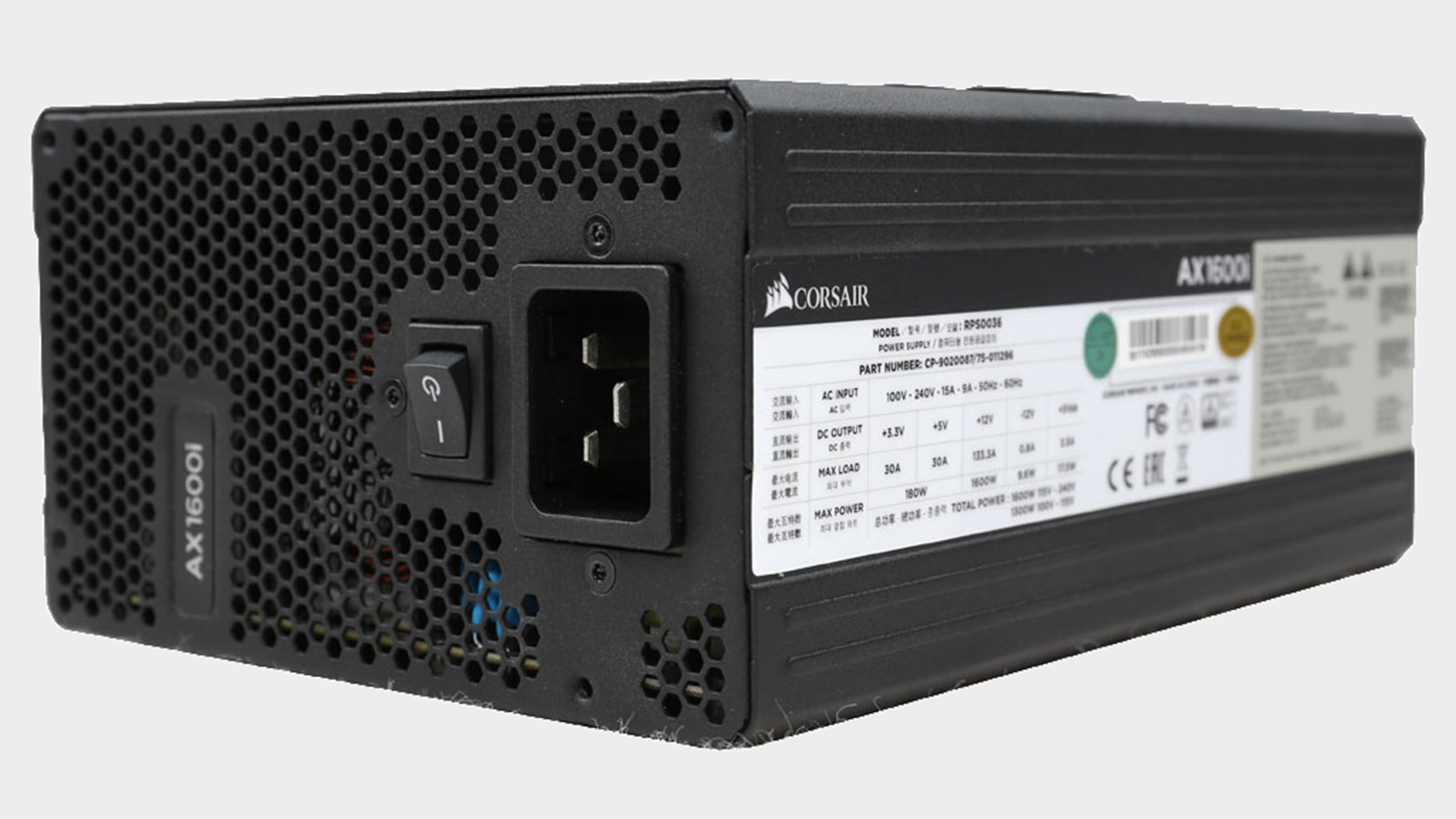
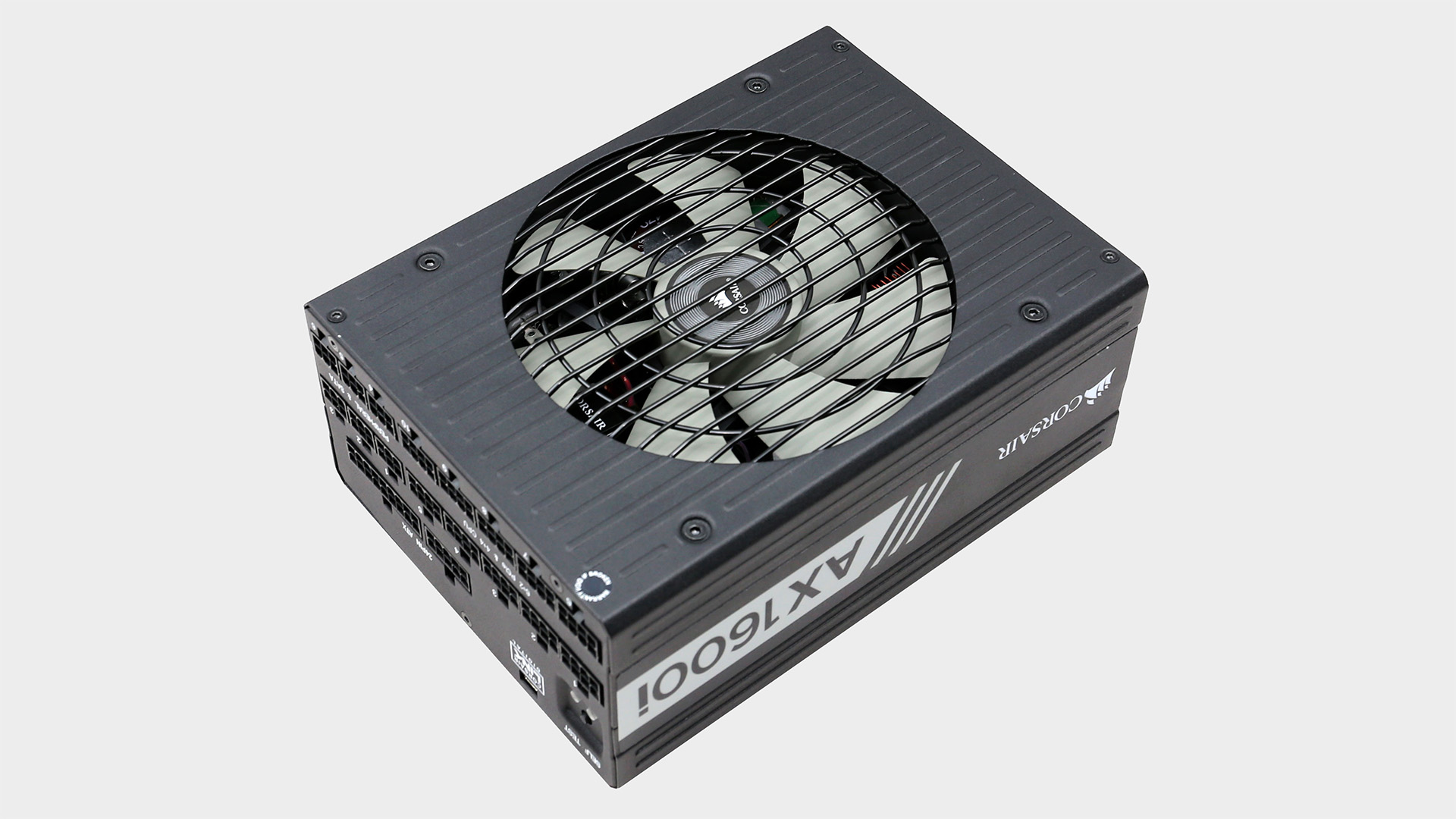
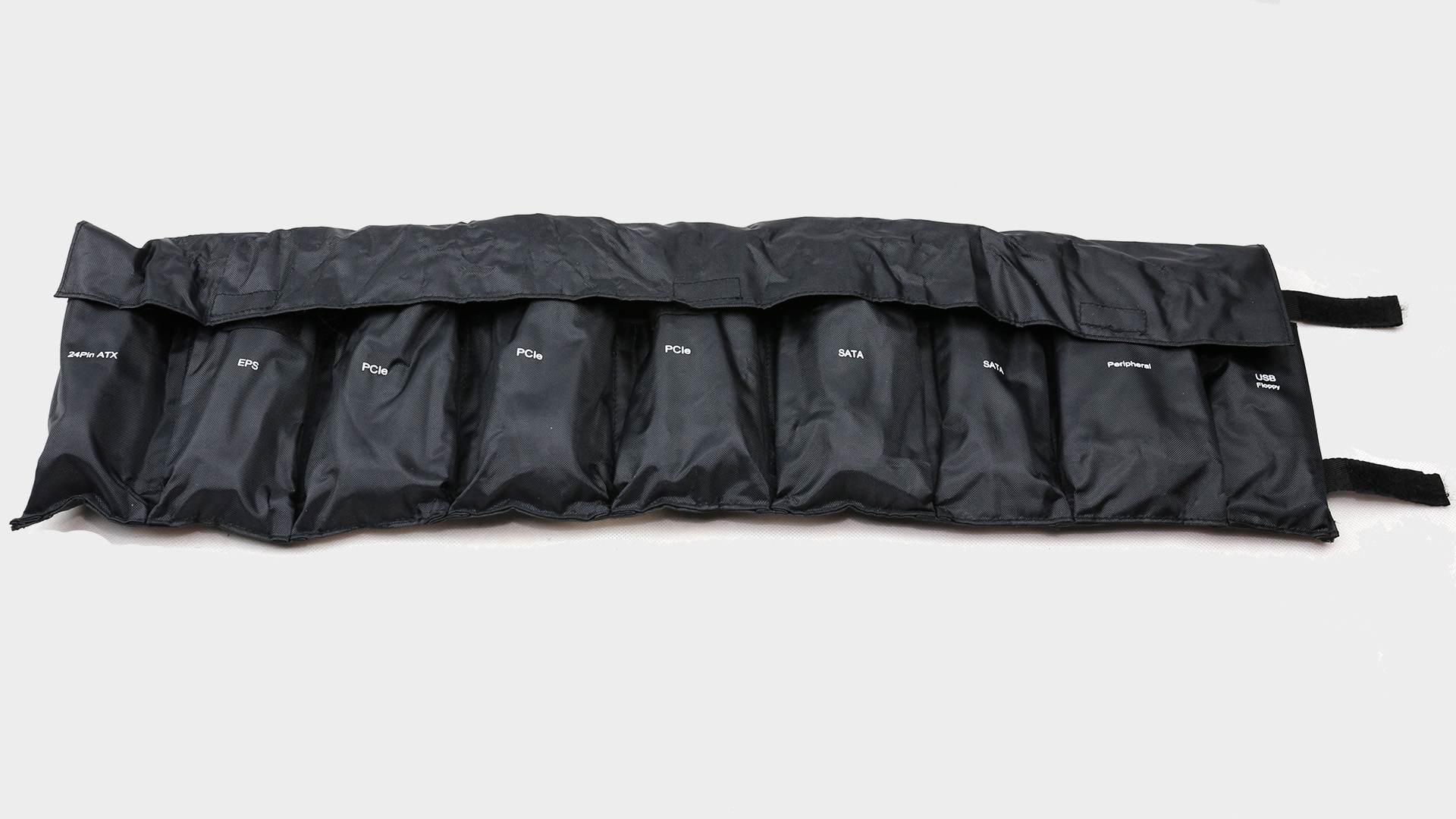
Specifications
Reasons to buy
Reasons to avoid
The Corsair AX1600i is the best high-capacity power supply, thanks to being one of the first desktop PSUs to use its cutting-edge power supply technology. Even several years after its initial release, few other PSUs utilize it. In short, the AX1600i uses a totem-pole PFC converter, utilizing GaN MOSFETs, which can offer up to 99% efficiency compared to the 96% efficiency levels that the most advanced conventional APFC converters can deliver. Okay, those are the technical details, but what you really need to know is that this is about as efficient as power supplies get.
Besides the totem-pole PFC, the AX1600i also uses two Digital Signal Controllers (DSCs) to manage its circuits. A single microcontroller (MCU) is the communications bridge between the system and the PSU, allowing users also to control some vital functions of the PSU (for example, the fan speed profile and the selection between multiple and single +12V rails, setting up the OCP limits, etc.) besides monitoring tasks.
The AX1600i is the worthy successor of the legendary AX1500i. Both units are made by Flextronics, using cutting-edge technology while offering the best performance that money can buy today, thanks to their digital platform. Besides being highly efficient, the AX1600i also offers outstanding load regulation, excellent transient response, long hold-up time, and excellent ripple suppression.
Despite its high capacity, it remains impressively quiet in operation, thanks to the relaxed fan profile and a high-quality FDB fan. Finally, using the Corsair Link software, you're able to choose between three fan modes: performance, balanced, and quiet, so every user will be able to set the PSU according to their needs. You will pay a lot to get your hands on a Corsair AX1600i, but there is nothing else able to meet this PSU eye-to-eye when it comes to overall performance.
Read our full Corsair AX1600i review.
The best small form factor power supply for PC gaming
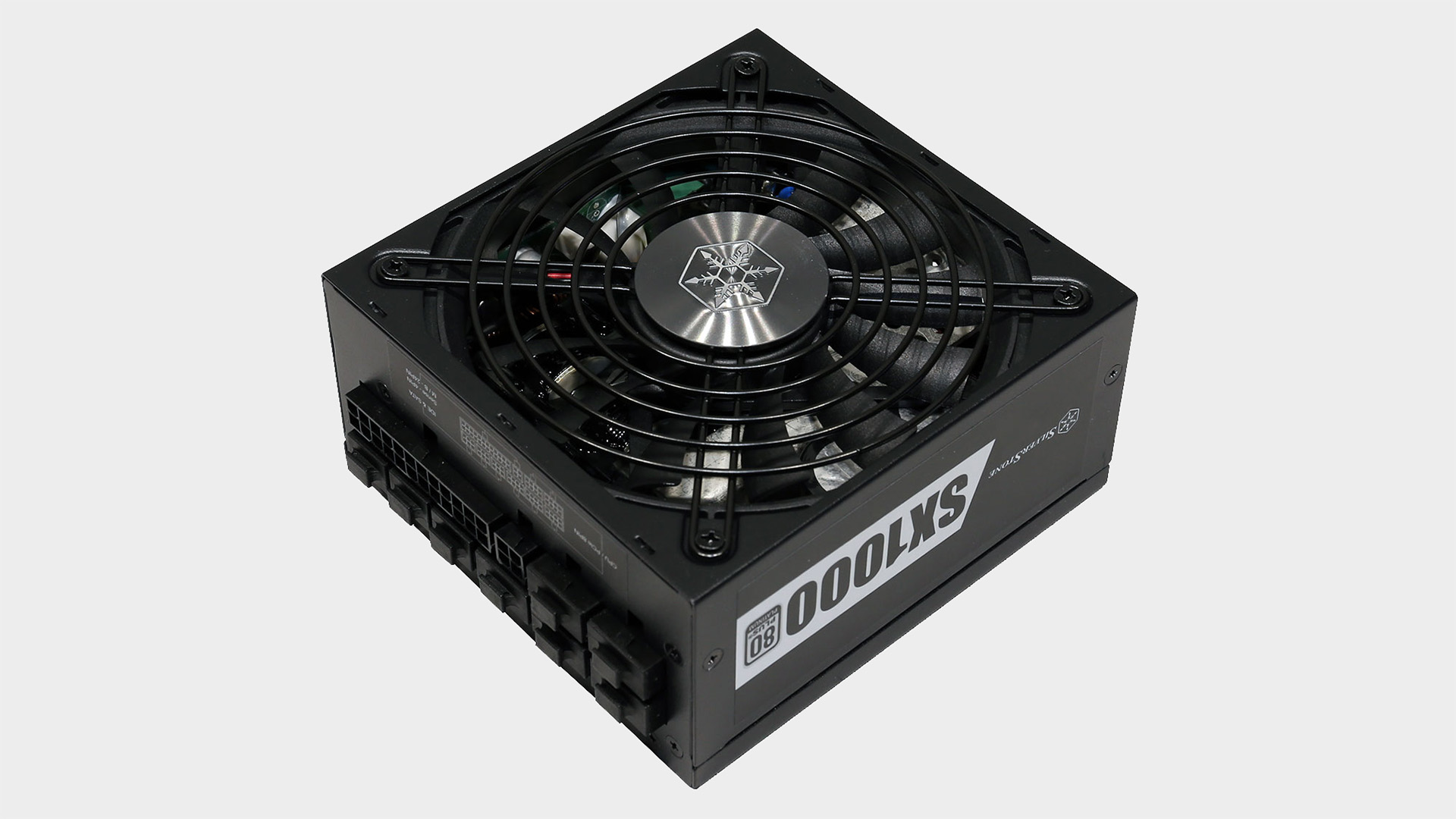
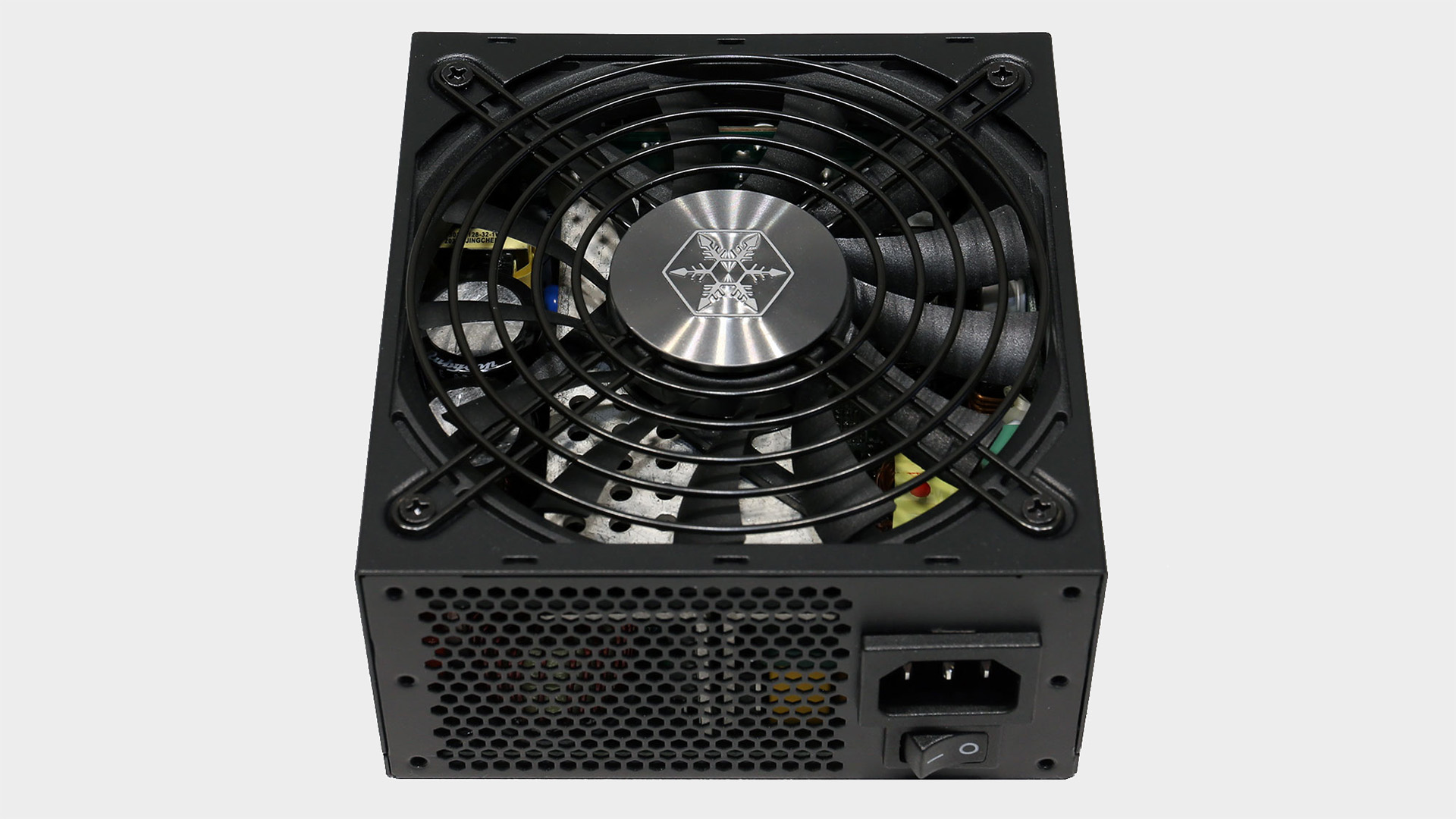
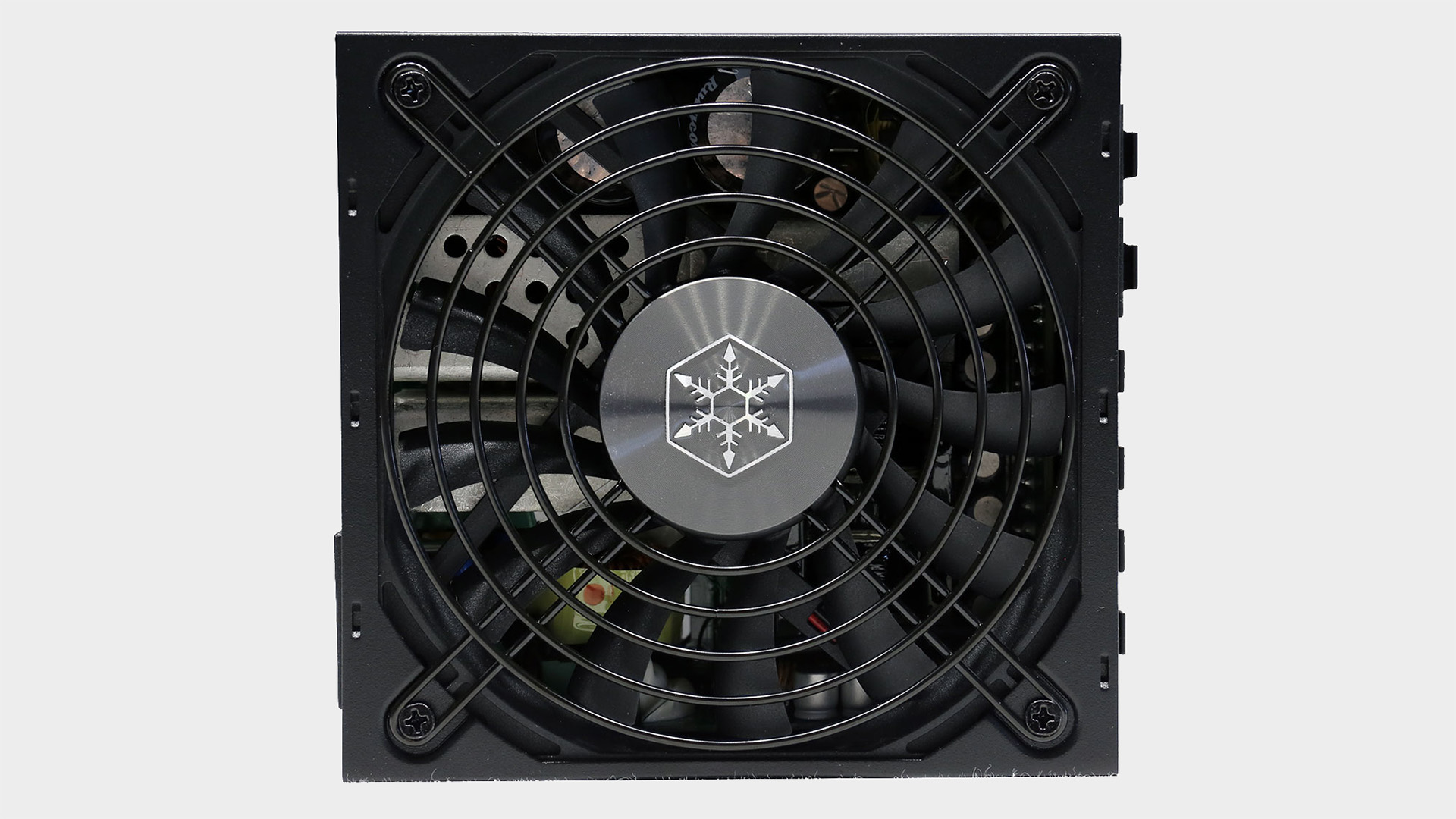
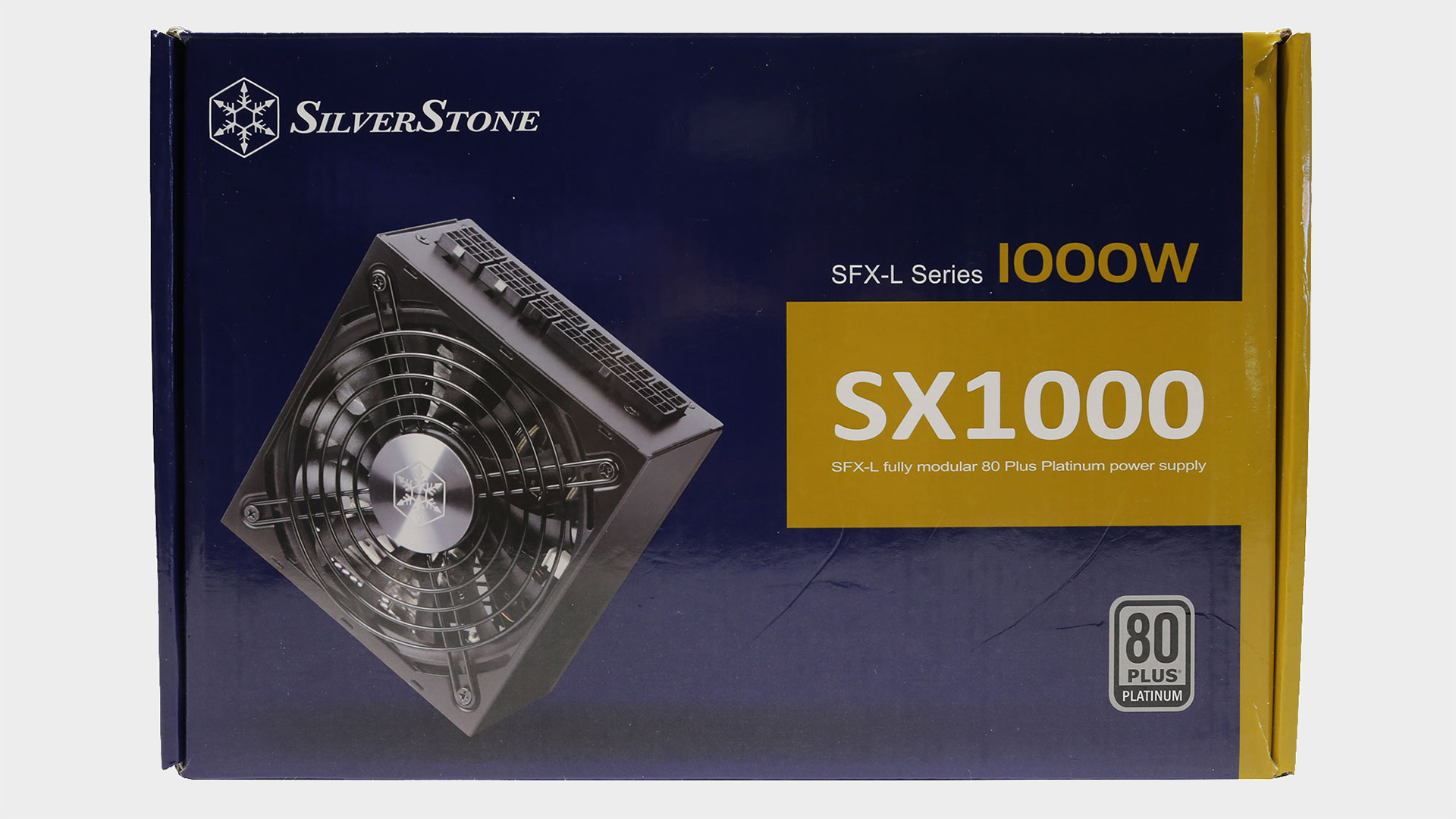
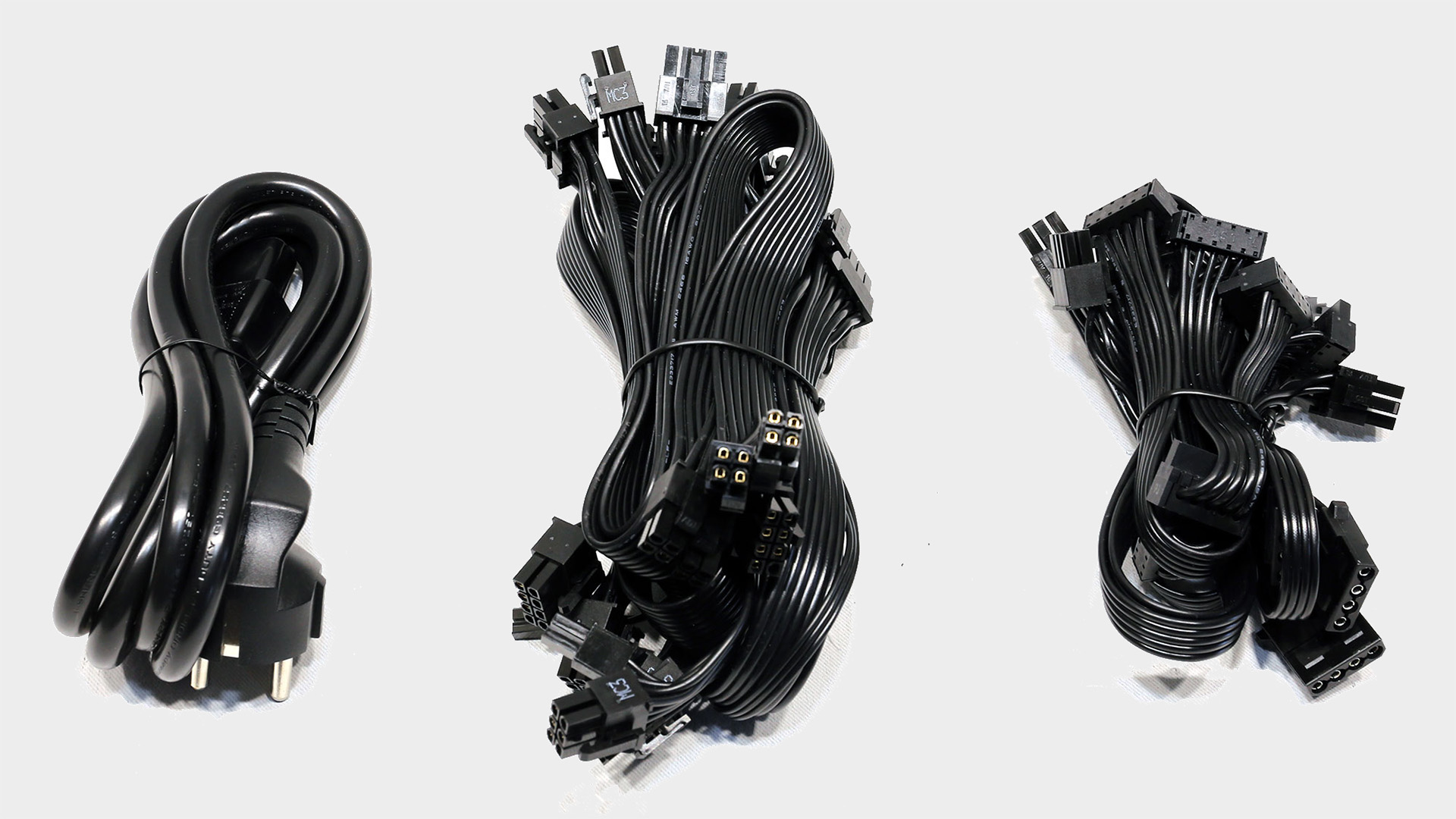
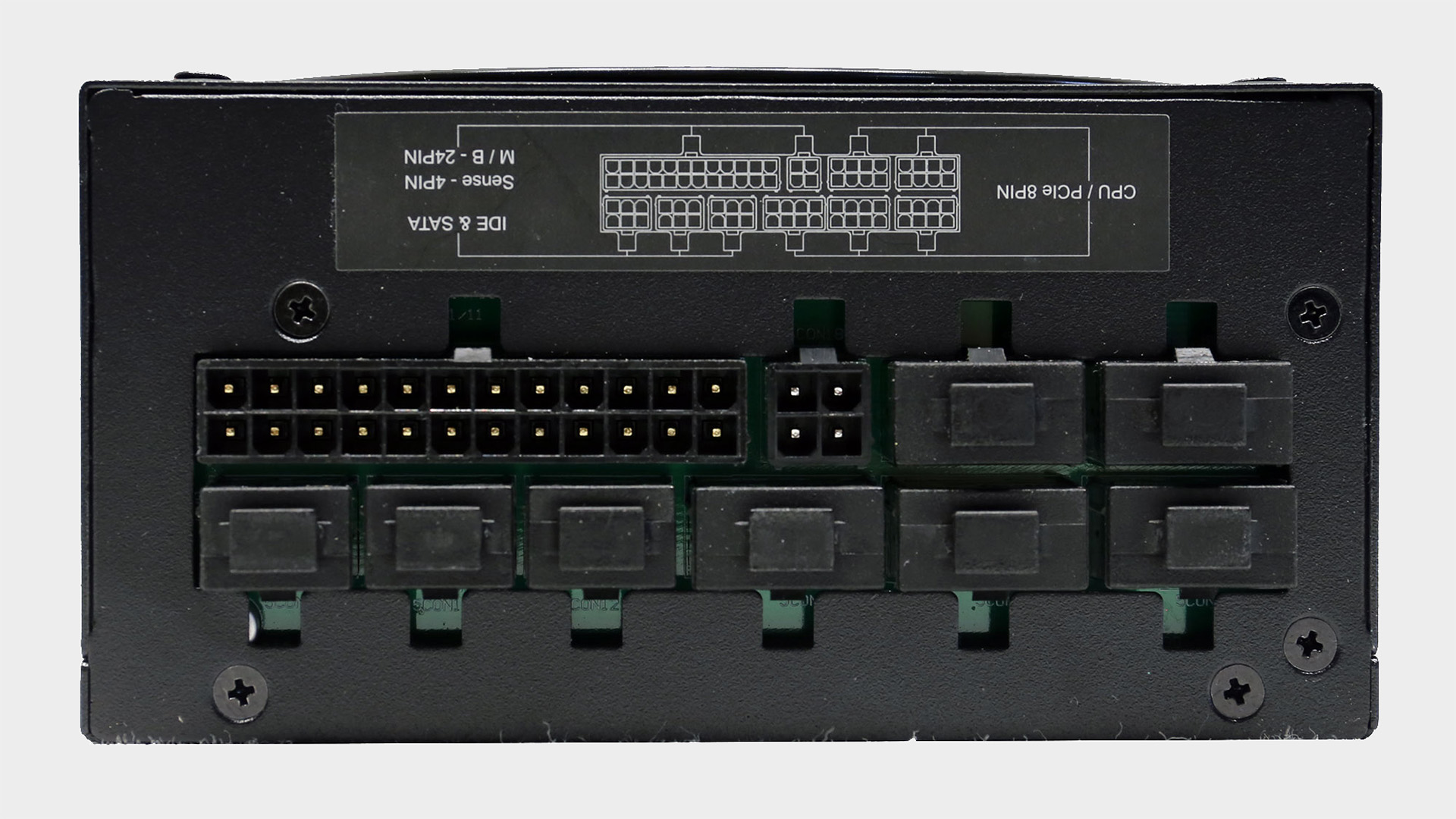
Specifications
Reasons to buy
Reasons to avoid
The SilverStone SX1000 is the strongest small factor unit we have tested so far, and it has enough connectors to support a strong gaming system even in a tight space. It even appears way stronger than its specs list appears, since we pushed it close to 1500W without issue.
SilverStone has equipped this PSU with two EPS and six PCIe connectors to ensure it can deliver its full power without any problems. Moreover, all cables are modular, making the PSU’s installation a breeze. Because of the small PCB, the temperatures at the internals can go high, so a double ball-bearing fan is used, which can handle hot conditions without any problems.
Since everything small and powerful is usually expensive, especially in the IT world, the SX1000 will empty your wallet. That said, PSUs are inexpensive given the vital role that they have in every system, so a 250-300 dollar power supply doesn’t look that expensive. Especially if you consider that you will keep it for many years.
Read our full Silverstone SX-1000 review.
The most flexible power supply for PC gaming
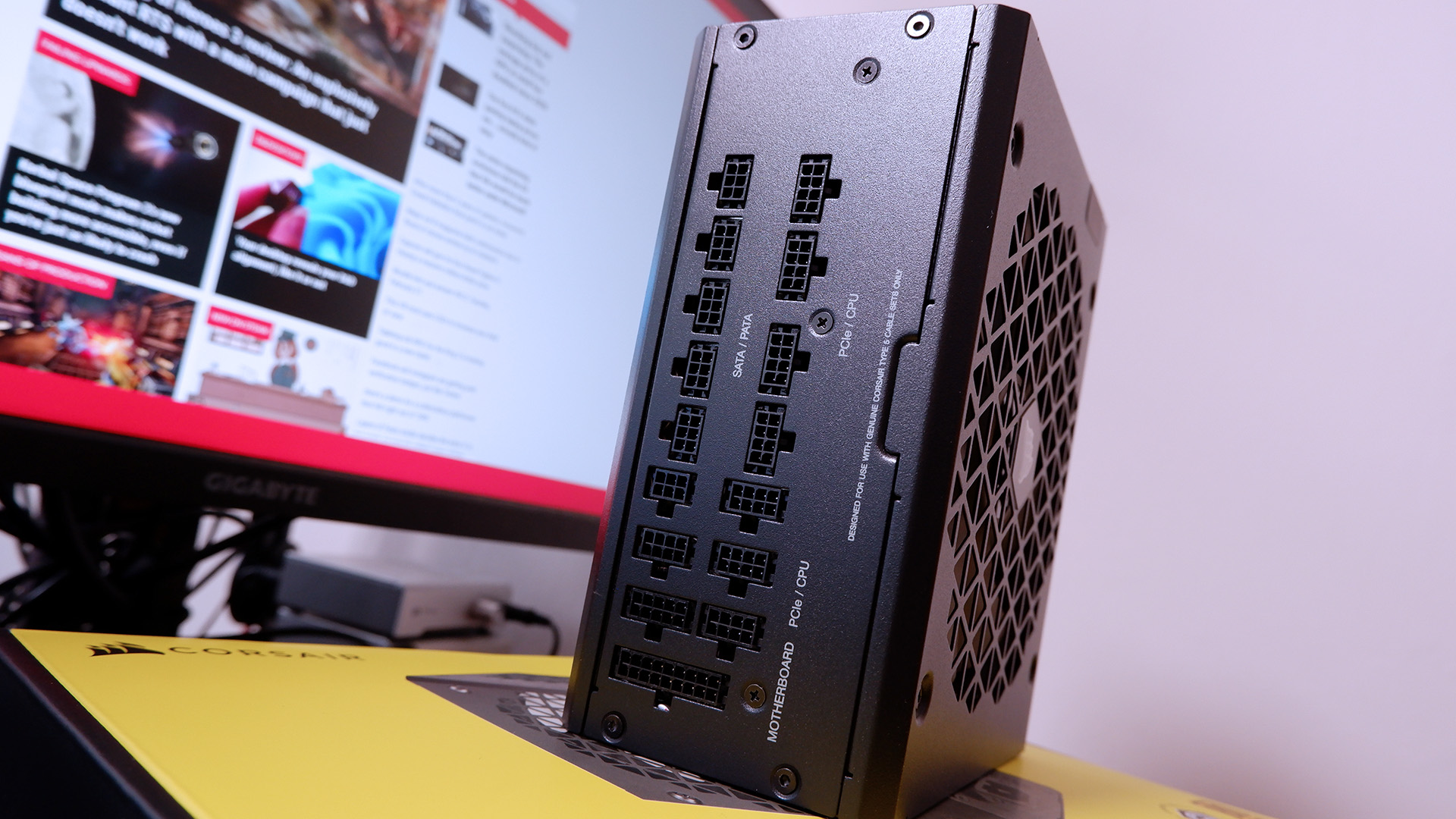
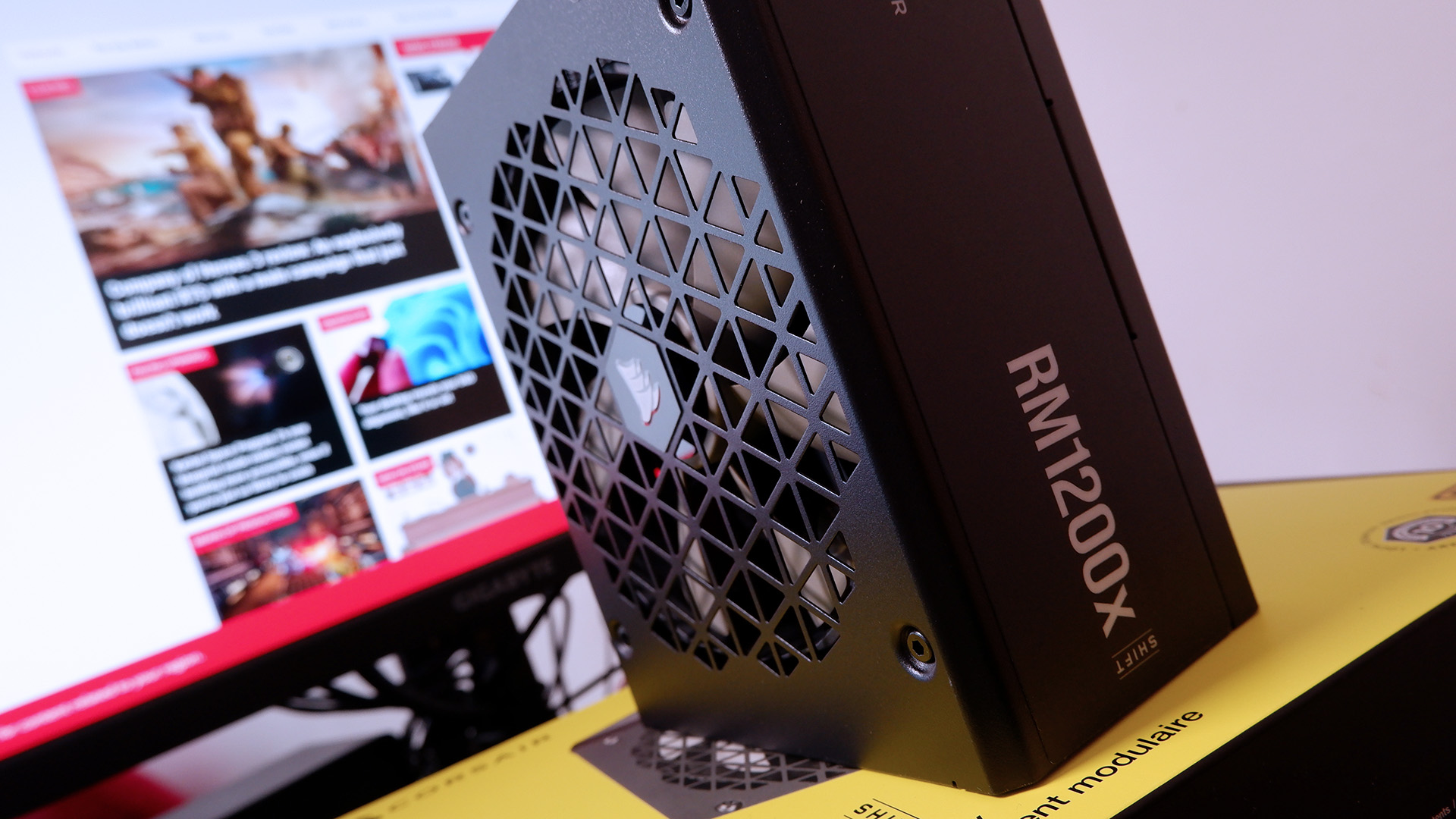
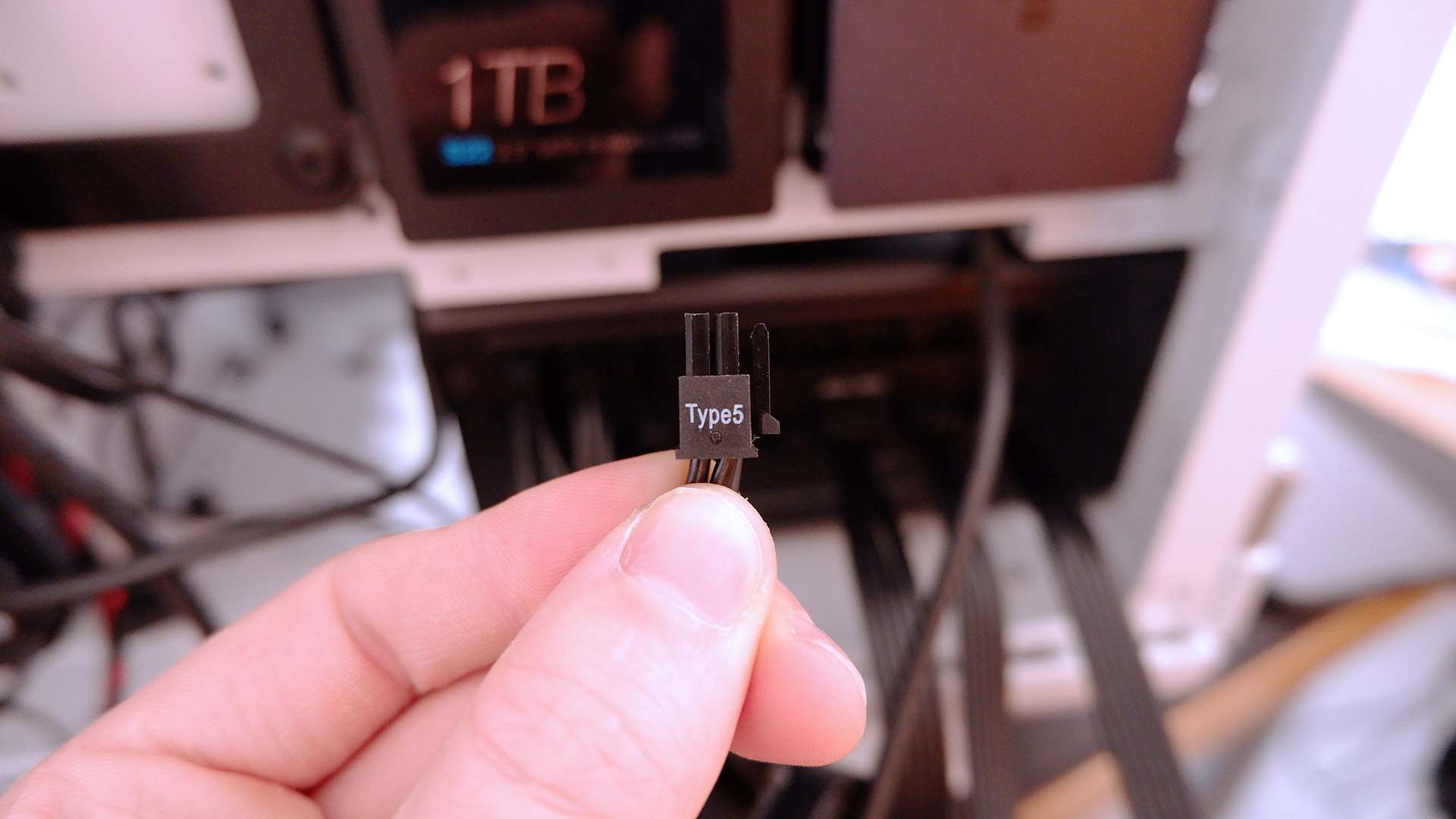
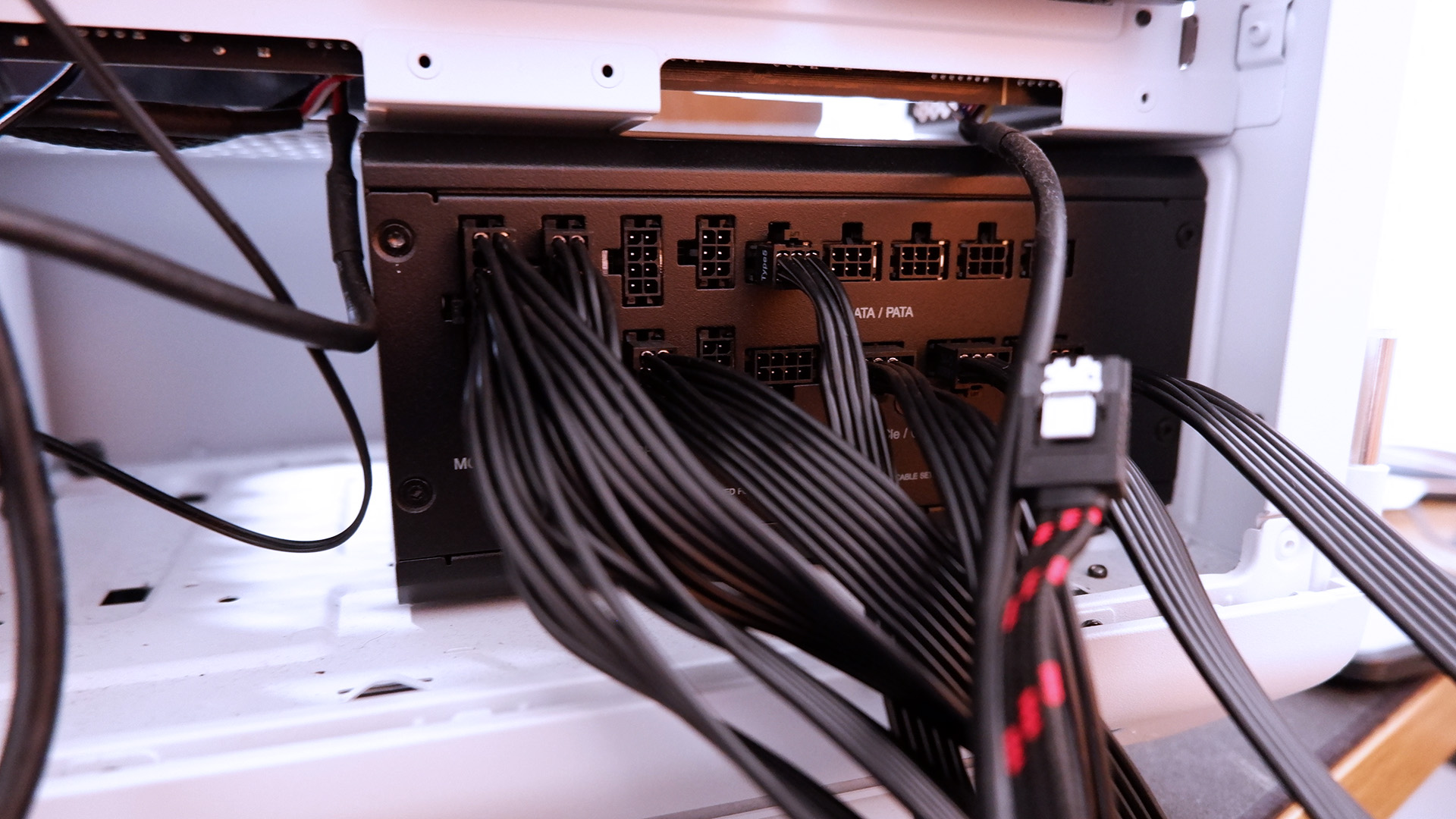
7. Corsair RM1200x Shift
Our expert review:
Specifications
Reasons to buy
Reasons to avoid
The Corsair RM1200x Shift is the most flexible PSU we recommend. The whole Shift lineup is a pretty wild concept for the world of power supplies, actually. What if, and stick with me here, you took the connectors off the back of the PSU and instead laid them out down the side of it? Then you could access all the plugs easier in a usual case after removing the side panel.
It seemed like a fun concept, so we called one in and tried it out inside a Corsair 5000T PC case. It works excellently once you start building, allowing you to skip over some of the hassle of pre-allocated connectors and running cables out of a tight spot. Instead you just load it into your chassis, decide on your cable runs, and it's all right there easy to use. Also all the connectors are micro-fit on the PSU side, meaning they're much smaller than usual, which makes things even easier.
The fundamental platform is made by CWT, the same manufacturer that takes on the job of crafting Corsair's RM750x, our favorite PSU for gaming. Also, it scores just as highly as that popular power supply in testing from Cybernetics, managing a Cybenetics Gold rating at both 115V and 230V. You can read a short version of the Cybenetics report if you want to get into all the details.
Read our story on what it was like to build with the RM1200x SHIFT.
How we test power supplies
Besides the experience and vast knowledge of electronics, the evaluation of power supplies also requires wildly expensive equipment, which not everyone can get their hands on. On top of that, even if you have the proper equipment, you need to know how to operate it, and above all, you have to properly maintain it (AKA calibrate it in frequent intervals to ensure that your results are correct).
This is why there are so few PSU reviewers, and even fewer can deliver good PSU reviews. That's why PC Gamer relies on the work of Aris Bitziopoulos, and power supply testing and certification company Cybenetics, for the recommendations that we list in this article. That data is gathered using the following test equipment:
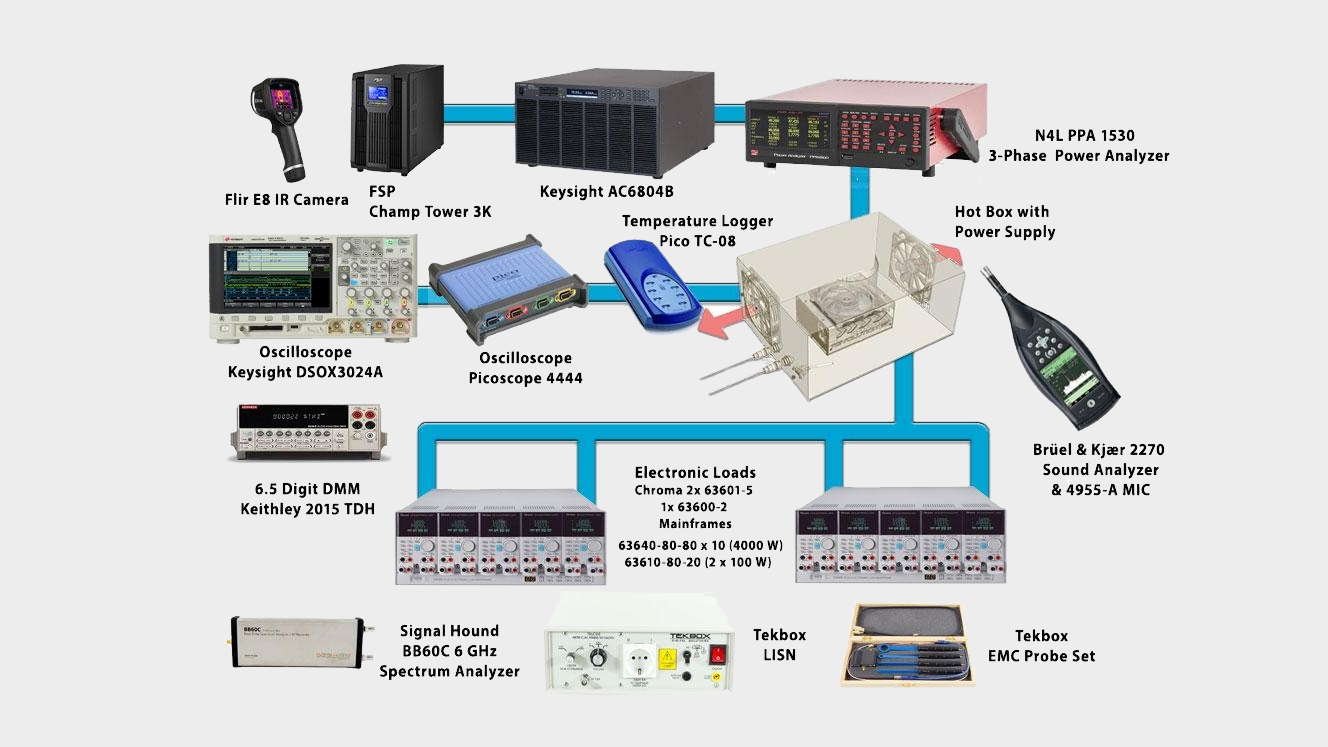
Aris uses top-of-the-line equipment to test power supplies, including Chroma electronic loads, Keysight AC sources, N4L power meters, Keysight and Picoscope oscilloscopes for PSU timing, and ripple measurements, along with other specialized equipment.
They take complete readings at normal operating temperatures, 28-32 degrees Celsius, and under high operating temperatures (>40C), which expose the slightest problem that a power supply might have. Testing a PSU only at room temperatures doesn't provide the whole picture, and this is where most PSU reviews suffer.
When it comes to noise measurements, besides a highly accurate sound analyzer, Aris also has a hemi-anechoic chamber at their disposal, with a close to 6dBA noise floor. The noise measurement's set-up is depicted in the photos below.
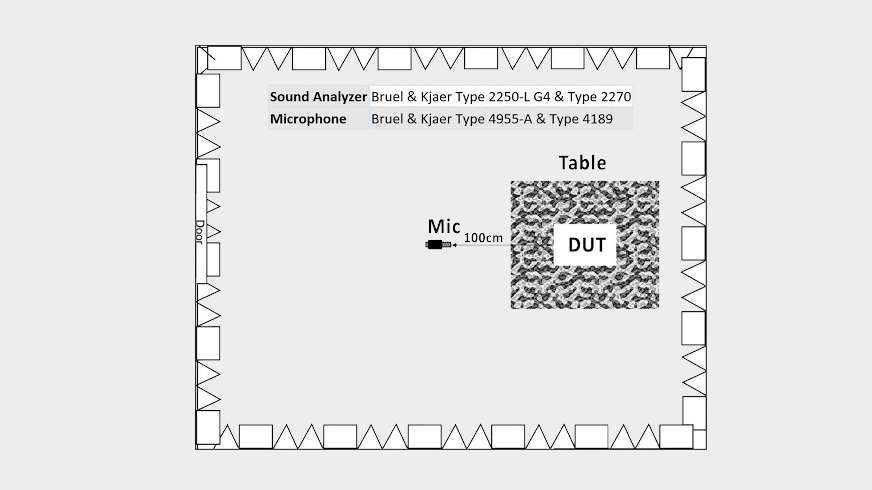
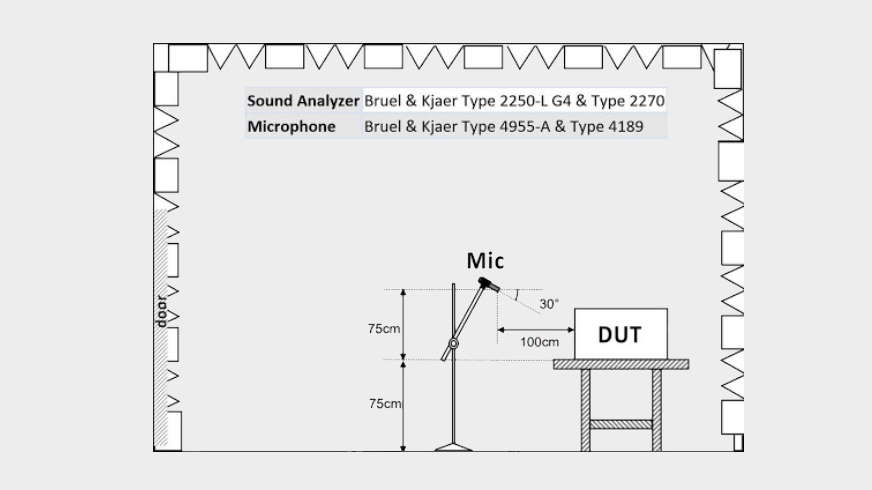
Best power supply FAQ
What PSU wattage do I need for my PC?
You don't need a degree in rocket science to work out the wattage requirements for your system. The recommended system power requirement listed on the specs list for your current or future graphics card is a great place to start. Still, we recommend using an online power calculator to get the most accurate figure. OuterVision's Power Supply Calculator is our go-to.
What efficiency rating is best for a PSU?
Once you've found out the wattage you'll need for your PC, you'll need to decide what efficiency you can afford. Power supply manufacturers all tend to agree to the same PSU efficiency rating system: 80 Plus.
There are six ratings to look out for with your PSU:
- Bronze
- Silver
- Gold
- Platinum
- Titanium
An 80 Plus Titanium certified power supply is more efficient than a Bronze one, meaning the parts within waste less power (heat) during the AC to DC conversion. These are often measured across three load levels: 20%, 50%, and 100%. Most PSUs tend to be rated at their most efficient at 50%, although Titanium PSUs tend to perform just as well, if not better, under heavy load.
Higher efficiency also means the internal components are subjected to less heat and are likely to have a longer lifespan. They may cost a bit more, but higher certified power supplies tend to be more reliable than others. Luckily, most manufacturers offer warranties.
What do we look for in a PSU?
Reliability, customer support, warranty, and manufacturer reputations are among the first things you should look for when choosing the best power supplies. Since there isn't exactly a single solution that makes sense for every build, we decided on several categories to fit the needs of most PC gamers. For each, we also took into account budgets, compatibility, unique features, and design.
Our top selections were made based on a combination of the criteria listed above and overall efficiency ratings. While it isn't by any means the all-telling solution for PSU performance, the 80 PLUS certification program provides some form of standardization and expectations for efficiency. More efficient PSUs mean less heat and lower energy consumption.
Do I need a modular PSU?
It pays to future-proof against any upgrades further down the line. A modular PSU will allow you to add extra cables as needed or remove unused ones to free up valuable room inside your case. This is handy if you've got your heart set on a beefier graphics card or want the flexibility of being able to add other peripheral connections later.
However, you can absolutely make do without, as even semi-modular or fixed cable designs will do the job just as well if only with a few extra cables lying around. You can usually tuck these into the back of your PC case to keep them out of your eyesight.
As a word of warning, compatibility is a significant factor when it comes to power supply units. Using cables from different PSUs could put your entire PC at risk, so stick with those provided. Even if they are from the same manufacturer, not all PSU cables will be universally compatible either, complicating things further. If you absolutely must splinter from the cables included, have a look at your PSU's PIN connectors and make sure your cable set has ones that match to avoid any unnecessary frustration and breakages.
The biggest gaming news, reviews and hardware deals
Keep up to date with the most important stories and the best deals, as picked by the PC Gamer team.
- Jacob RidleyManaging Editor, Hardware

